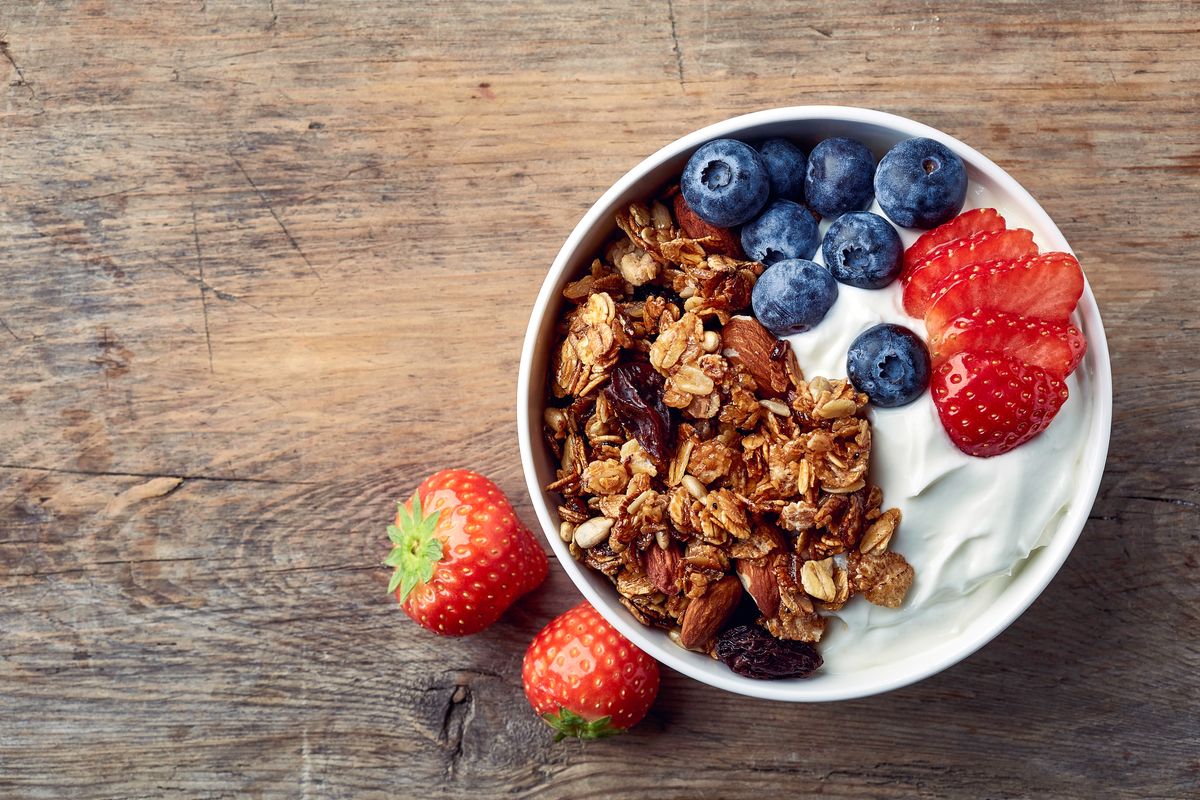Inflammation is a natural response of the body to injury or infection, but it can also have negative consequences. In some ways, inflammation is like passionate sports fans during a championship game. They cheer and shout, but when their team wins, they may become uncontrollable and destructive, causing chaos and damage. Similarly, inflammation's healing intentions can spiral out of control, leading to sickness and weight gain.
Inflammation is part of your body's immune response, designed to alert you when you experience an injury or wound. For instance, when you sprain your ankle, it may become swollen and painful, signaling your immune system to fix it. However, inflammation isn't only caused by external injuries. Factors such as lack of sleep, chronic stress, genetics, and poor diet can also contribute to inflammation.
The Role of Diet in Promoting Inflammation: Understanding the Connection
The typical American diet, with its abundance of inflammation-inducing foods, can contribute to chronic inflammation. Foods like fried foods, refined sugars and flours, animal products with added hormones and antibiotics, synthetic sweeteners, and artificial food additives can all contribute to a pro-inflammatory state in the body. This type of high-energy diet has been linked to weight gain, decreased levels of gut-healthy probiotics, and various diseases, including heart disease, obesity, and diabetes.
If you're struggling to lose weight, it may be time to make a change in your diet. Fortunately, research suggests that certain foods can help counteract the effects of inflammation-perpetuated weight gain. These anti-inflammatory foods work by increasing the concentration of beneficial bacteria in your gut, turning off inflammatory genes, and decreasing levels of pro-inflammatory biomarkers. In the process, they can also help you shed excess weight.
By incorporating more of these anti-inflammatory foods into your diet, you'll be taking a step toward a healthier, leaner, and happier you.
1) The Health Benefits of Tart Cherries: A Delicious Superfood
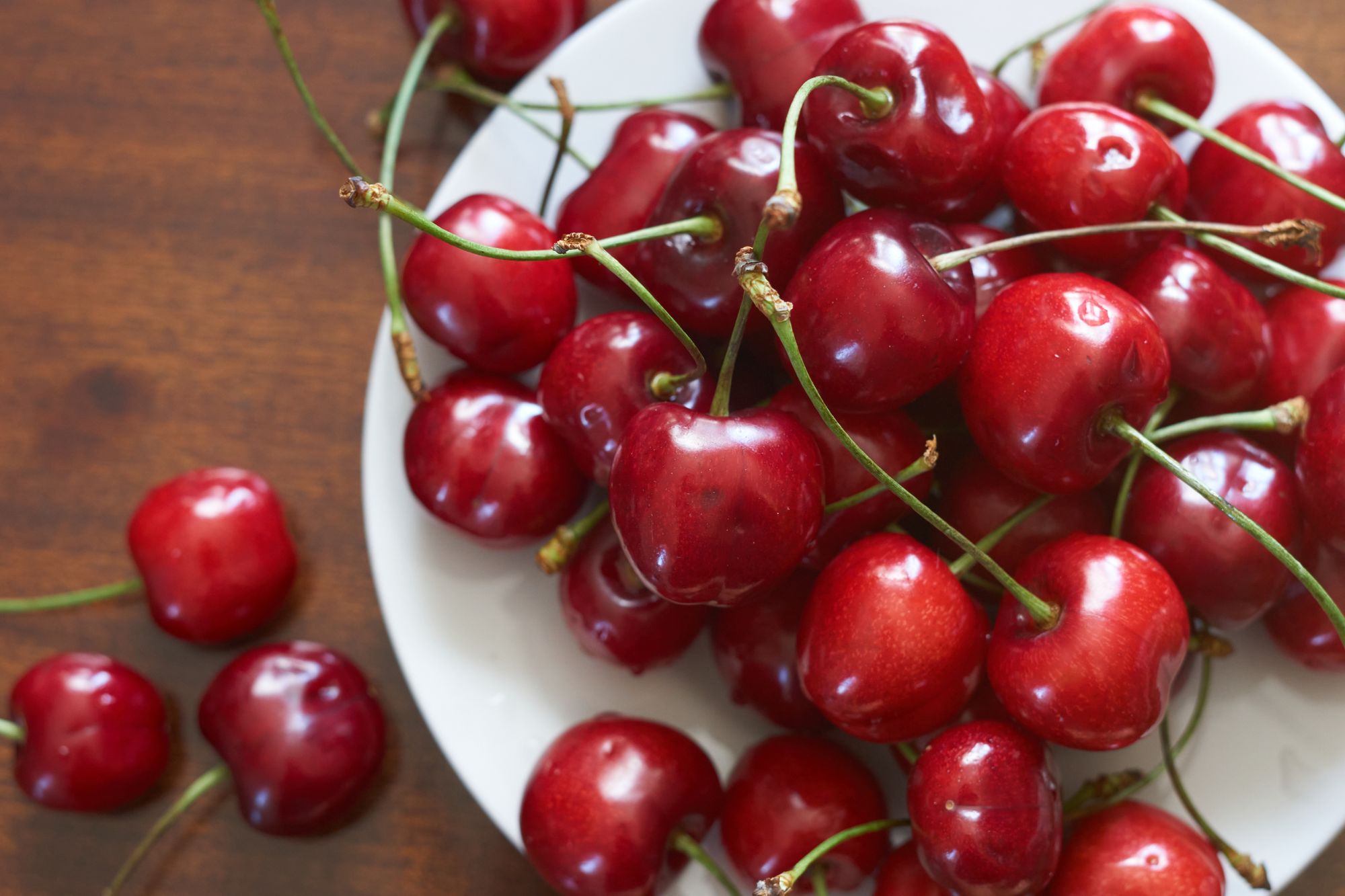
Tart cherries, also known as Montmorency cherries, are a delicious and well-balanced anti-inflammatory food. According to Amy Goodson, MS, RD, CSSD, LD, author of The Sports Nutrition Playbook and member of our Expert Medical Board, tart cherries are an excellent source of anthocyanins, which are anti-inflammatory compounds that can help combat chronic diseases.
Research suggests that tart cherries may be particularly effective in reducing arthritis pain and fighting oxidative stress. In fact, incorporating tart cherries into your diet may even help with post-workout recovery. As an anti-inflammatory food, tart cherries can be a tasty and healthy addition to any diet.
2) Blueberries
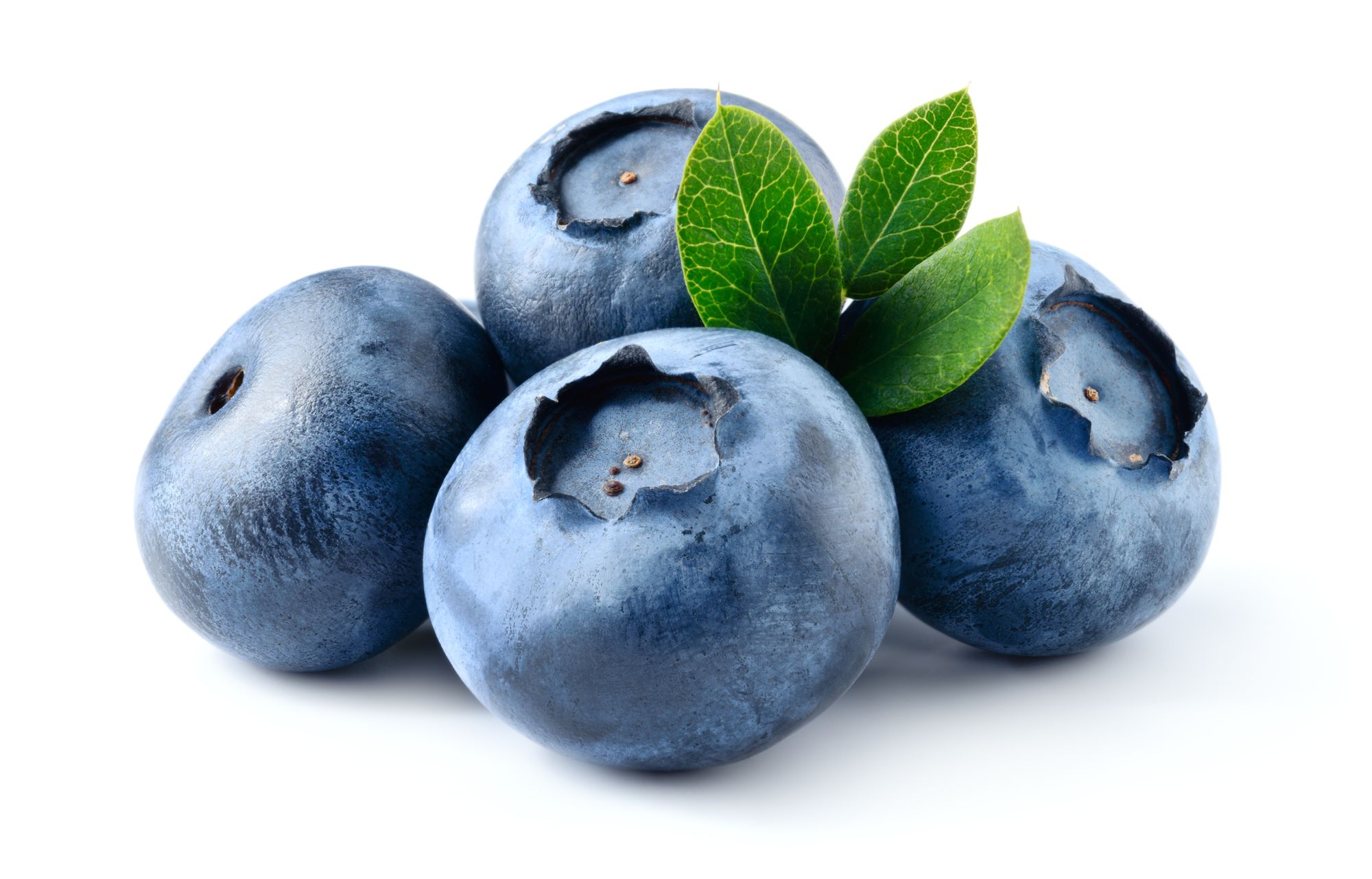
A recent study published in the journal Antioxidants revealed that consuming berries can significantly reduce inflammation in the body. This is because berries are rich in a class of antioxidants known as flavonoids, particularly anthocyanins, which have anti-inflammatory effects by turning off inflammatory and immune genes.
Of all the berries, blueberries are particularly high in anthocyanins. In addition, blueberries also contain vitamin C and another polyphenol called resveratrol, both of which can promote anti-inflammatory responses by reducing the levels of inflammatory free radicals in the body. Adding blueberries to your diet can be an easy and delicious way to boost your intake of anti-inflammatory nutrients.
3) Raw oats
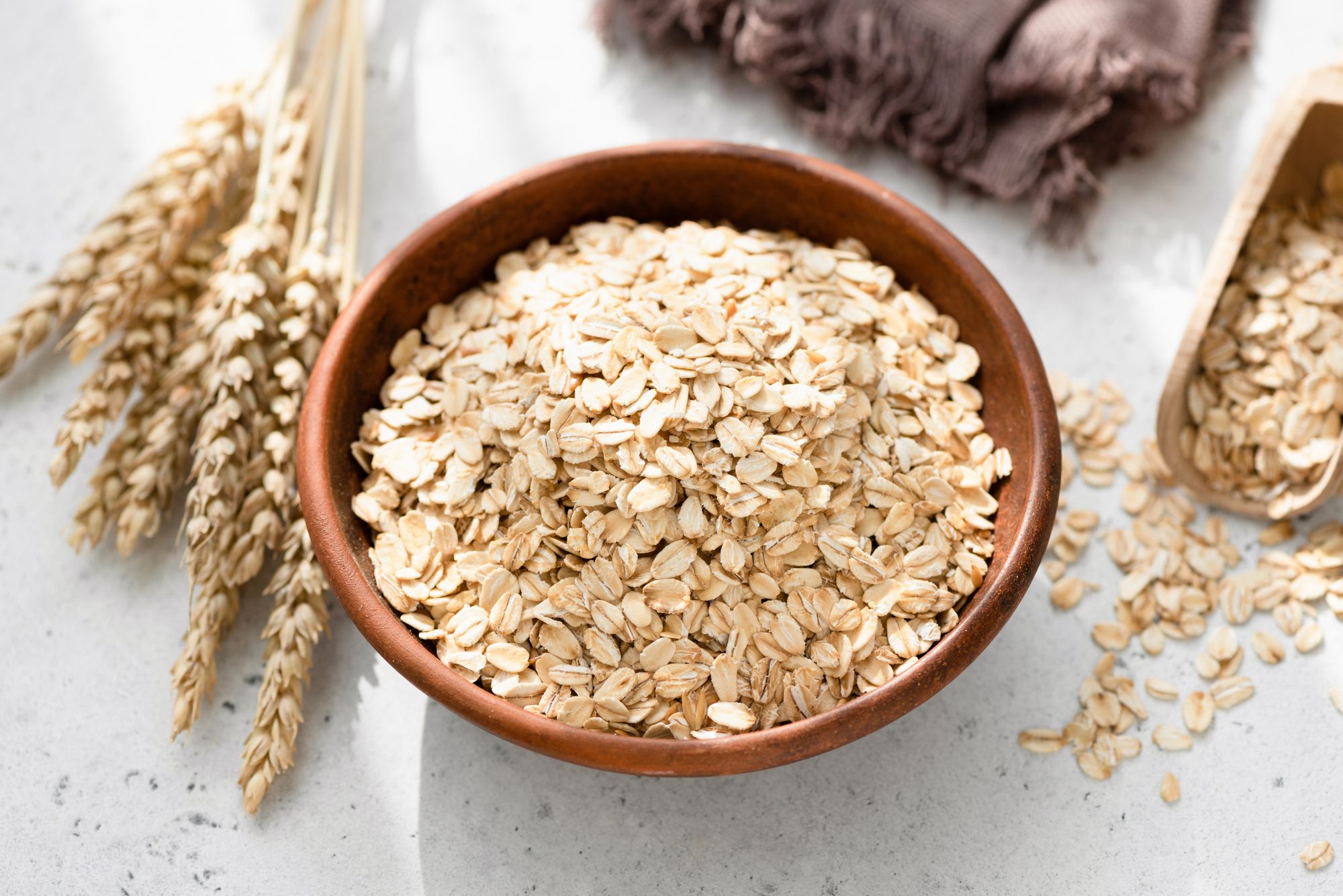
Prepare a jar of overnight oats loaded with dark chocolate, berries, nuts, and a sprinkle of cinnamon, and you'll not only enjoy a delicious breakfast but also help fight inflammation and reduce belly fat. The raw oats used in overnight oats are a type of carb known as resistant starch, which passes through the gut undigested.
Instead of being used as fuel for the body, resistant starch feeds the healthy gut bacteria, leading to the production of a fatty acid called butyrate. Higher levels of butyrate can help increase fat oxidation, reduce inflammation in the body, and improve insulin resistance. By reducing inflammation, you may experience less bloating and achieve a slimmer body. Including this simple and healthy breakfast option in your diet could be an effective way to promote a healthier body.
4) Ginger
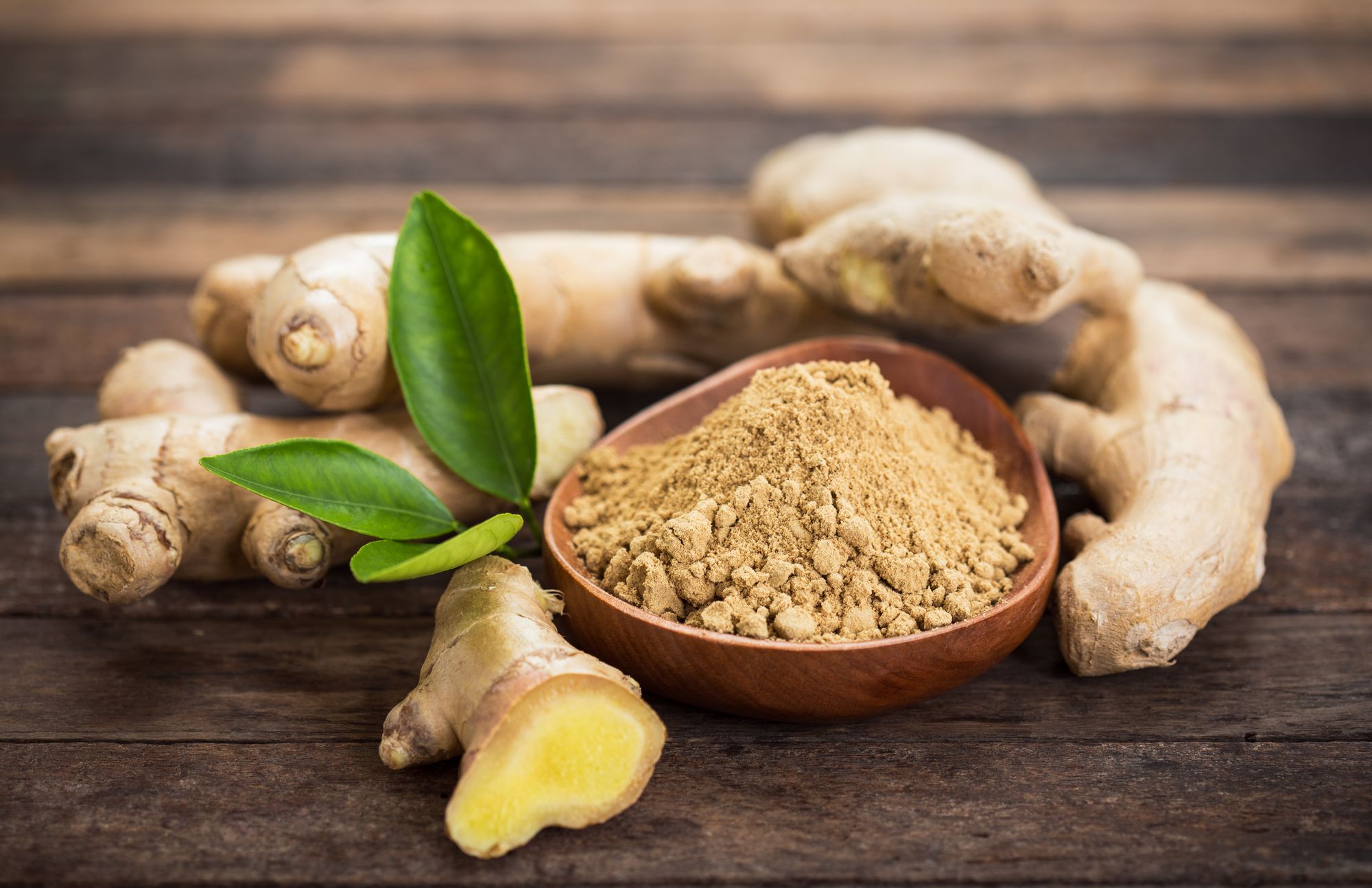
The health benefits of ginger can be attributed to its content of gingerols, which are compounds that possess antioxidant, anti-inflammatory, antibacterial, and disease-fighting properties. Several studies have demonstrated that these compounds can block specific genes and enzymes in the body that promote inflammation.
For instance, a study published in Frontiers in Pharmacology found that ginger can help reduce inflammation by decreasing the level of pro-inflammatory cytokines, which are proteins found in cells, while increasing the number of anti-inflammatory cytokines. The most concentrated source of gingerol is fresh ginger root, so grate it up, steep it in hot water, and enjoy a warm cup of ginger tea to benefit from its anti-inflammatory properties.
5) Green tea
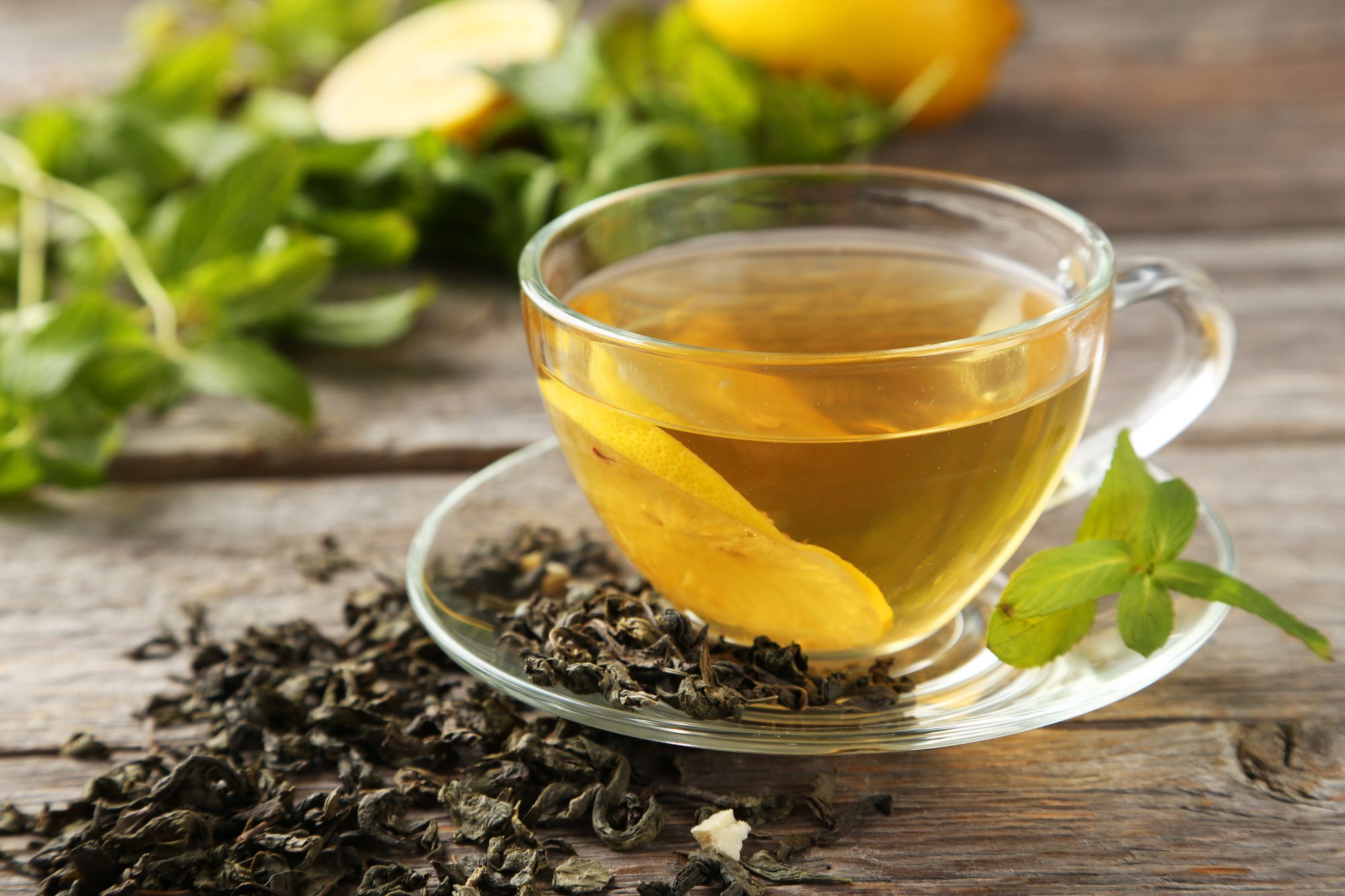
Green tea, a modest drink with a long history as a health elixir, can also be your secret weapon for weight loss. It contains high levels of catechins, a group of antioxidants that are concentrated in the tea plant's leaves. The most potent of these catechins is epigallocatechin gallate (EGCG), which is found almost exclusively in green tea.
A recent study published in Cochrane Reviews has suggested that green tea may be beneficial in weight loss efforts for overweight or obese individuals. In addition, green tea, especially when it contains a high concentration of EGCG, can help fight against inflammatory diseases, according to Anti-Inflammatory & Anti-Allergy Agents in Medicinal Chemistry. By incorporating green tea into your diet, you may be able to achieve weight loss and support your body's anti-inflammatory response.
6) Dark chocolate
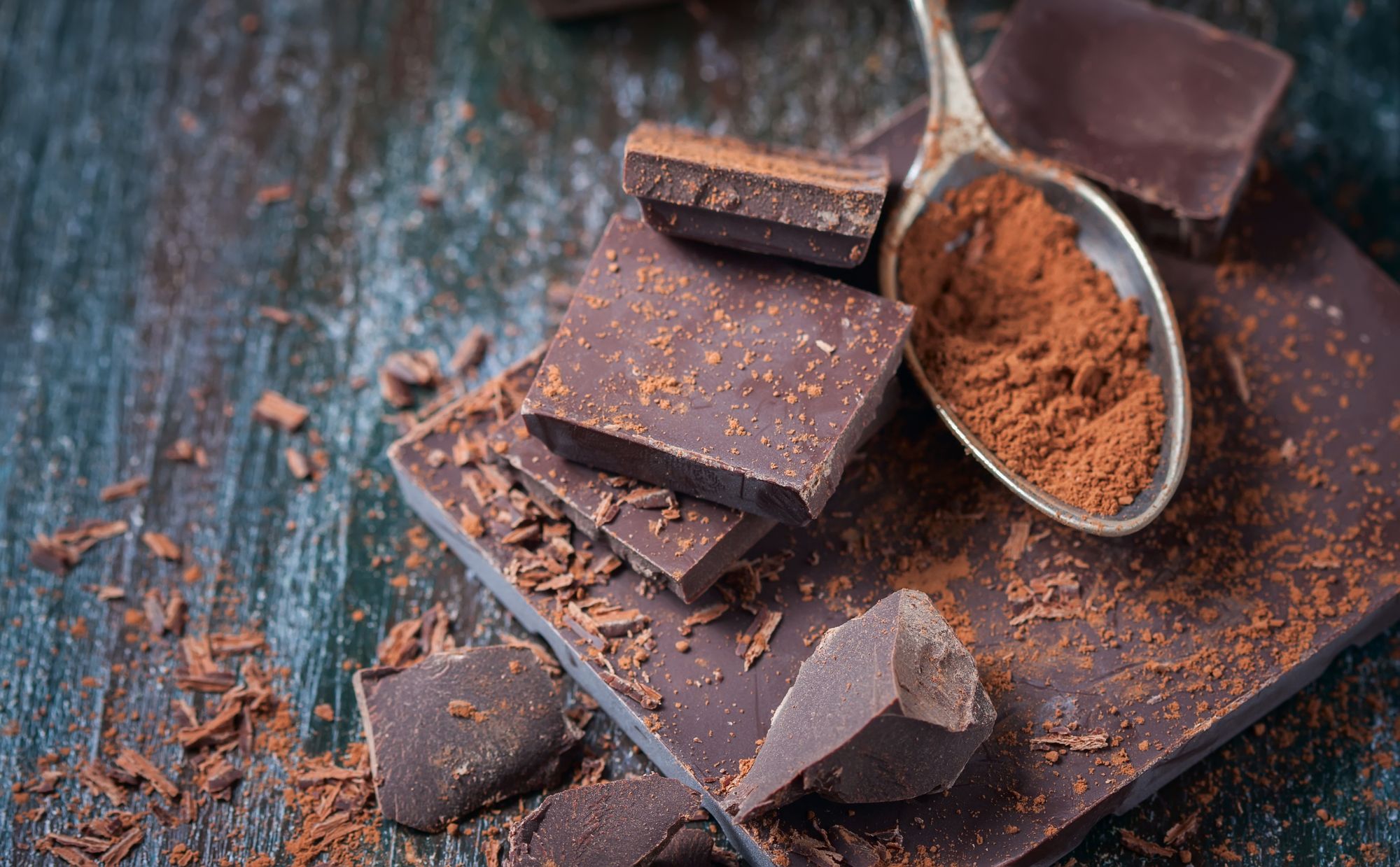
If you're a chocolate lover, you'll be thrilled to hear that dark chocolate can have a positive impact on the gut microbiome, according to a review published in Frontiers in Immunology. Consuming dark chocolate can lead to an increase in gut microbial diversity, resulting in anti-inflammatory effects. In a small study on individuals with type 2 diabetes, participants who consumed 30 grams of 84% dark chocolate for eight weeks had lower levels of inflammatory markers in their blood compared to those who did not consume chocolate.
For maximum benefits, try pairing your dark chocolate with apple slices. Apples can speed up the probiotic fermentation process, leading to even greater reductions in inflammation and weight. It's important to choose high-quality dark chocolate with a cacao content of 70% or higher, as these contain the highest levels of antioxidants. By adding dark chocolate and apples to your diet, you can enjoy a delicious snack while promoting anti-inflammatory effects and improving gut health.
7) Wild salmon
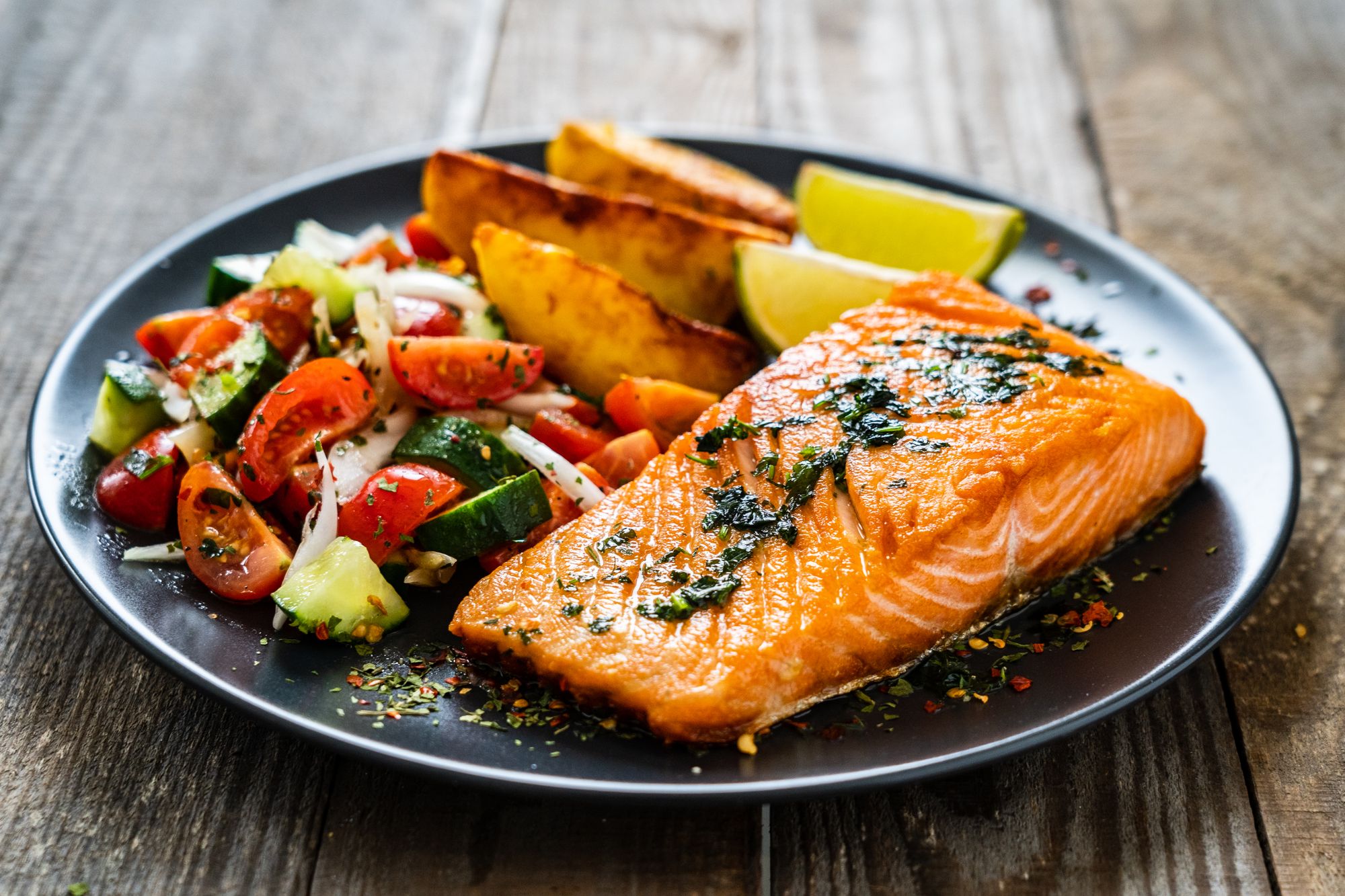
When it comes to consuming fats, there is one type that you should not reduce: omega-3s. These healthy fats are renowned for their anti-inflammatory properties, and fatty fish are one of the best sources of these polyunsaturated fats.
Wild salmon, for example, is a rich source of both EPA and DHA, two of the main types of omega-3s. Unlike plant-based omega-3s, these two fatty acids are already in an active form, making them more efficient in reducing excess inflammation by increasing the production of adiponectin. Adiponectin is a hormone that enhances muscle utilization of carbohydrates for energy, increases metabolism, and promotes fat burning. All of these processes ultimately lead to a decrease in inflammation markers. By including fatty fish in your diet, you can obtain ample amounts of omega-3s, which can help improve your overall health by promoting anti-inflammatory effects.
8) Red peppers
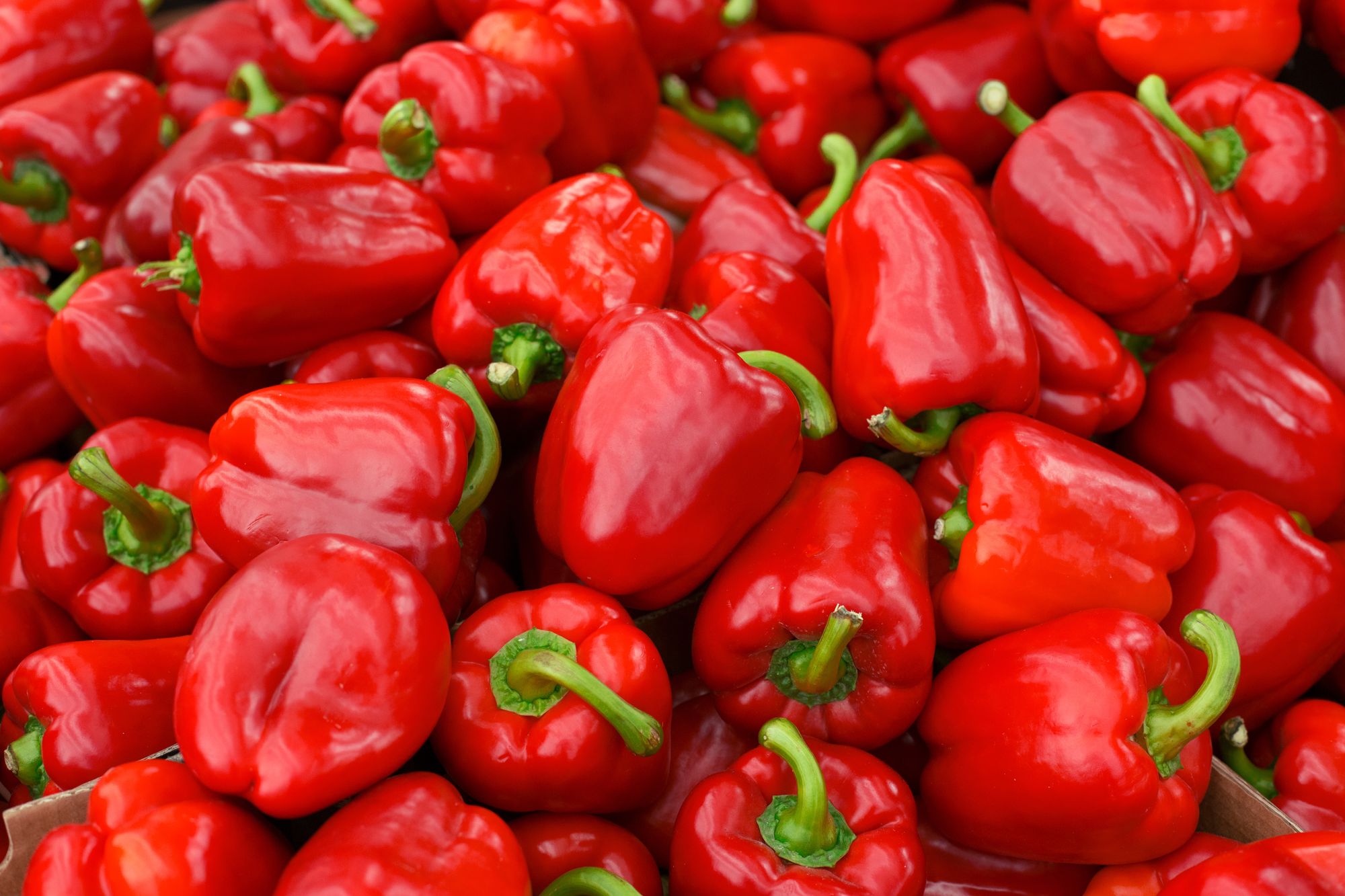
Peppers are an excellent anti-inflammatory superfood, but if you want to maximize the benefits, choose red bell peppers. According to research published in the Journal of Food Science, red bell peppers contain the highest levels of vitamin C, a potent anti-inflammatory biomarker. Additionally, red bell peppers are rich in bioflavonoids such as beta-carotene, quercetin, and luteolin.
Luteolin, in particular, has been found to neutralize free radicals and reduce inflammation. Beta-carotene, a fat-soluble compound, has been associated with a reduction in various cancers, as well as a lower risk and severity of inflammatory conditions such as asthma and rheumatoid arthritis. Quercetin has been shown to act as a mast-cell stabilizer in allergy research, reducing the number of cells that react to allergens. Mast cells are responsible for releasing histamine during inflammatory and allergic reactions. By incorporating red bell peppers into your diet, you can benefit from their anti-inflammatory properties and support your overall health.
9) Turmeric
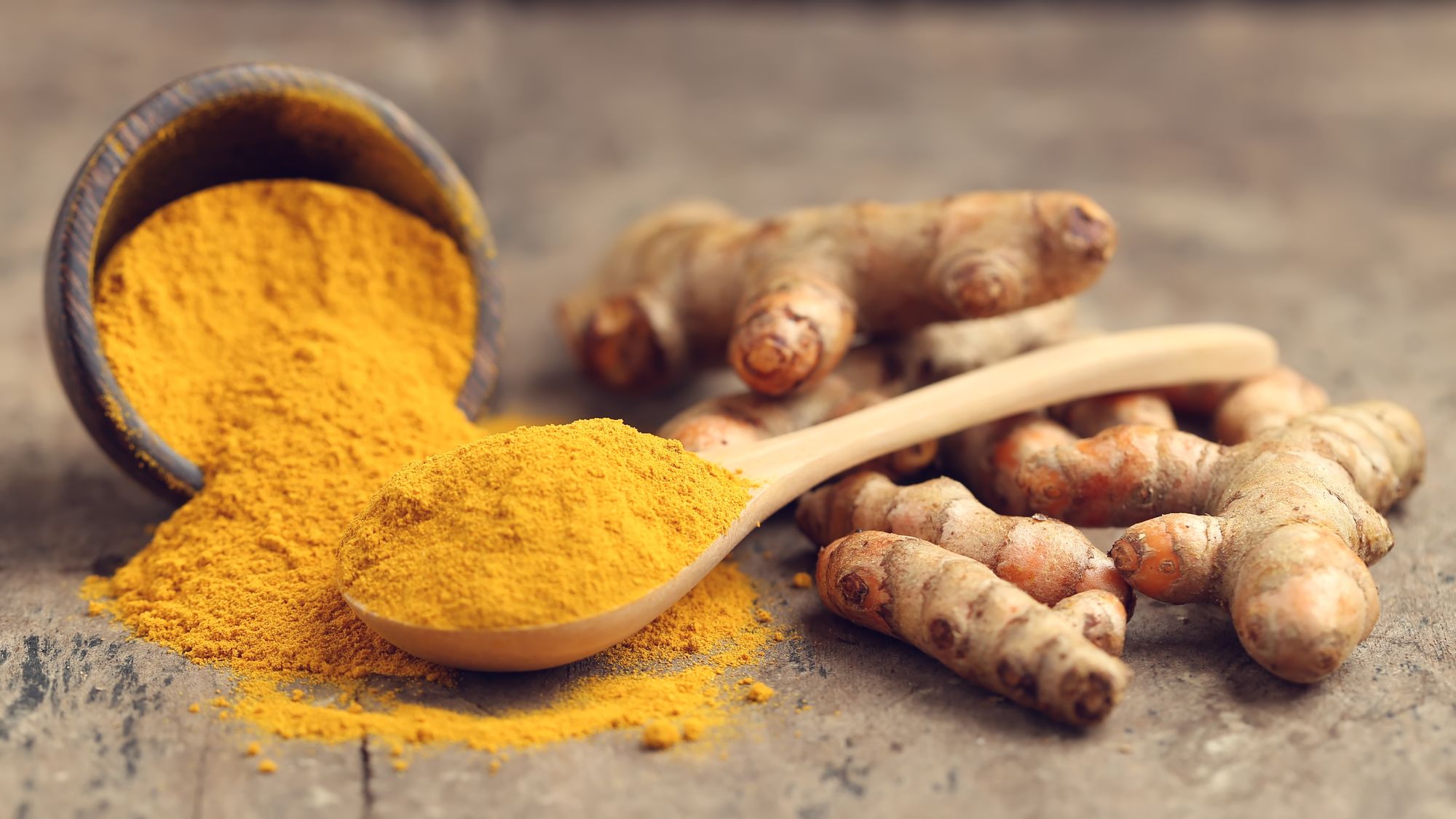
Turmeric owes its bright yellow-orange color to curcumin, an active compound that offers numerous health benefits beyond its vibrant appearance. Curcumin is known for its potent anti-inflammatory and antioxidant properties.
According to a study in Drug Design, Development and Theory, curcumin can inhibit the activation of inflammatory pathways and reduce the production of inflammatory markers in the body. These anti-inflammatory effects make curcumin useful for various health benefits, such as preventing cognitive decline, liver damage, and heart disease, as well as easing joint inflammation and pain associated with arthritis. By including turmeric in your diet, you can consume curcumin and potentially reap its anti-inflammatory and antioxidant benefits, leading to improved overall health.
10) Beets
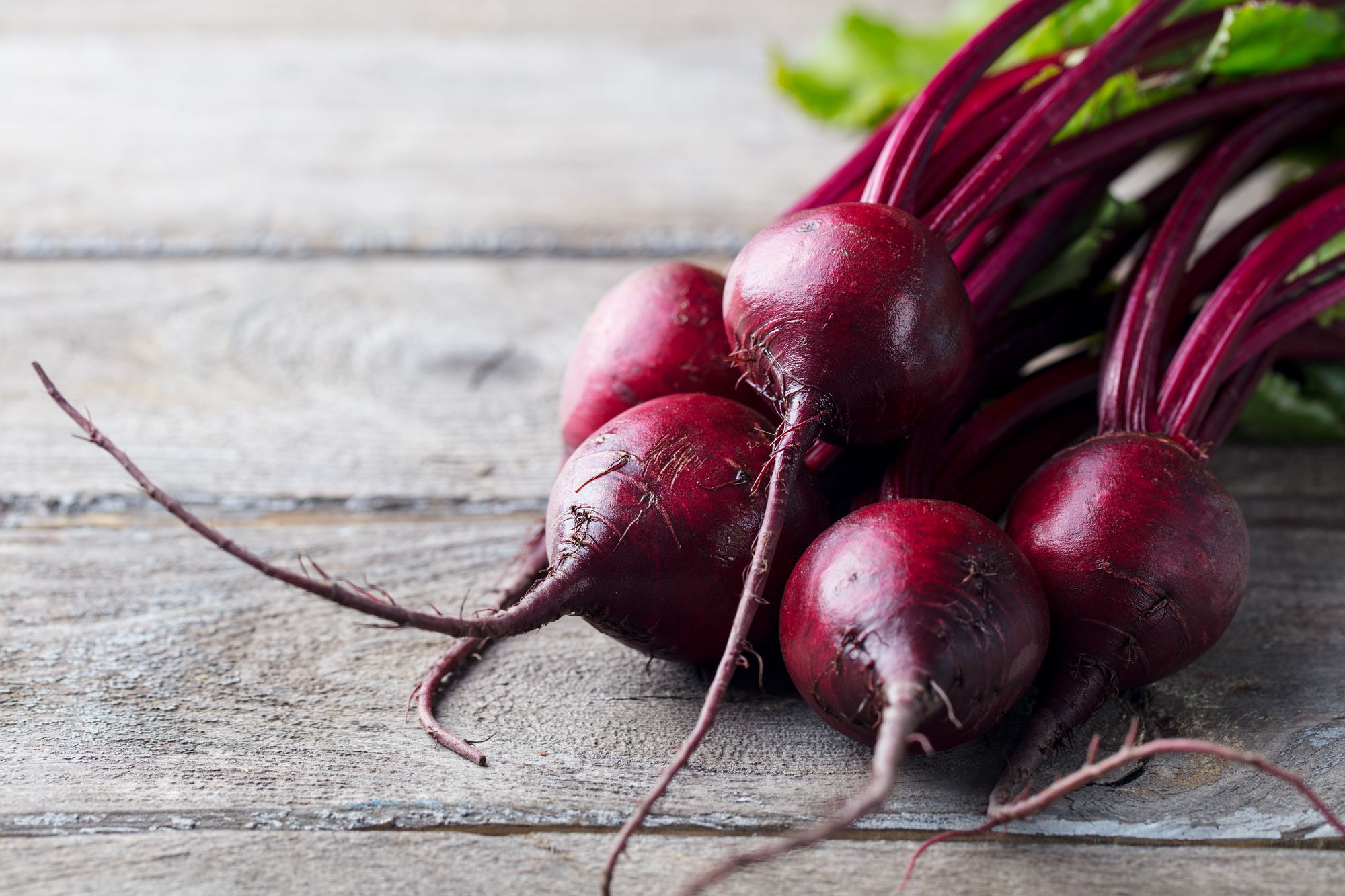
Beets are not only a rich source of phytochemicals such as ascorbic acid, carotenoids, and flavonoids, but they are also unique in containing betalain pigments that exhibit potent antioxidant, anti-inflammatory, and chemopreventive activity. One of these pigments, betaine, is a nutrient that can fight inflammation, boost your metabolism, positively impact insulin resistance, elevate your mood, and suppress genes that promote fat storage.
A study published in the Journal of Human Hypertension found that consuming beets or beetroot juice is associated with lower levels of inflammatory markers, such as CRP, interleukin-6, and tumor necrosis factor. These markers are released by harmful belly fat and are linked to an increased risk of plaque buildup, high blood pressure, and type 2 diabetes. By including beets in your diet, you can obtain beneficial betalain pigments, such as betaine, and potentially improve your overall health by reducing inflammation and mitigating the risk of various health issues.
11) Broccoli
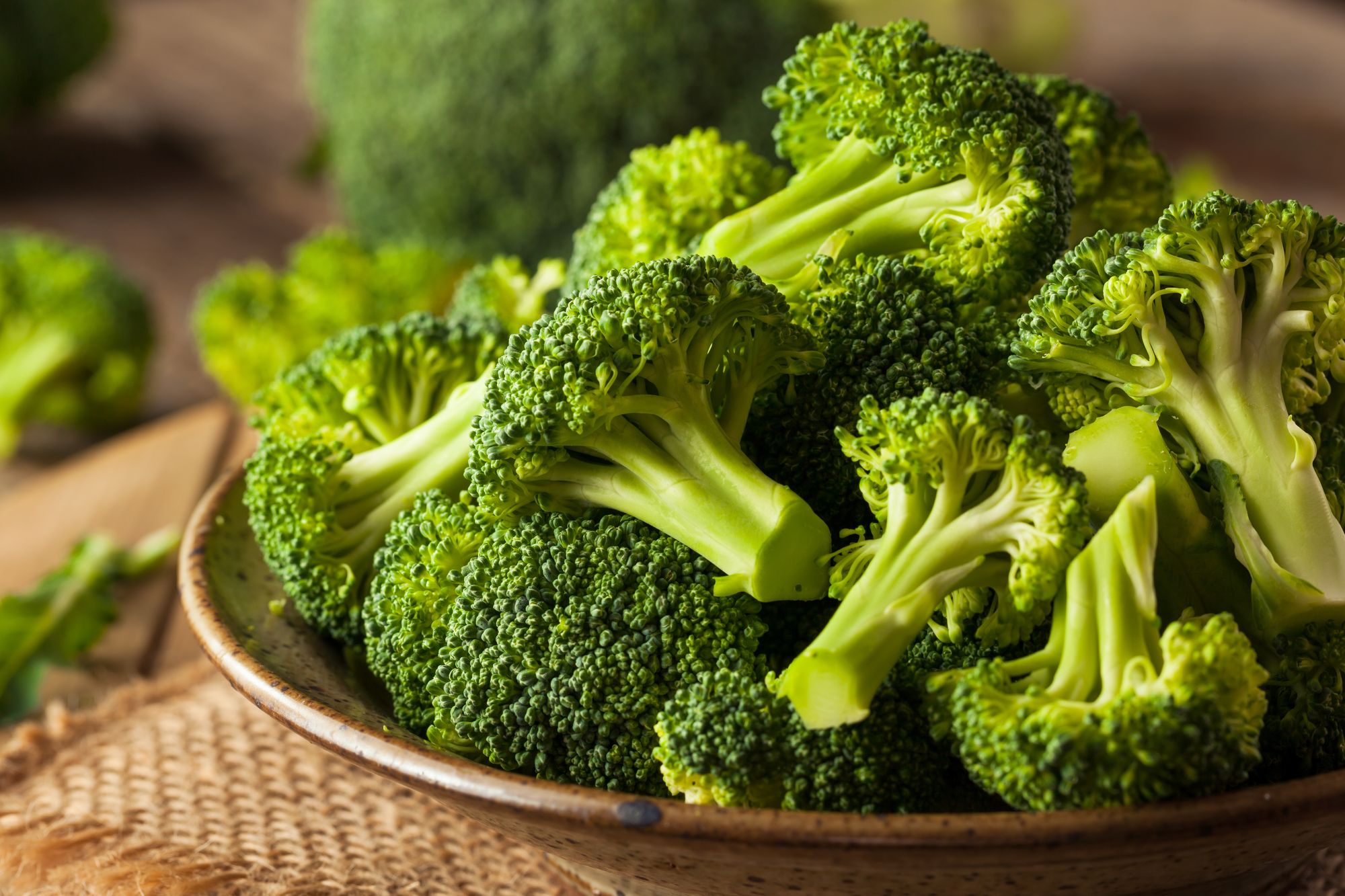
The anti-inflammatory benefits of broccoli may be attributed to its glucosinolate content, particularly in its sprouts. These compounds can prevent inflammation when they convert to I3C, a compound that has been found to reduce the production of pro-inflammatory mediators at the genetic level. Additionally, broccoli is rich in vitamin K, a nutrient commonly found in cruciferous and leafy green vegetables, which can help regulate inflammatory responses in the body. However, individuals with pollen allergies should avoid consuming raw broccoli. By including broccoli in your diet, you can potentially benefit from its anti-inflammatory properties and improve your overall health.
12) Black beans
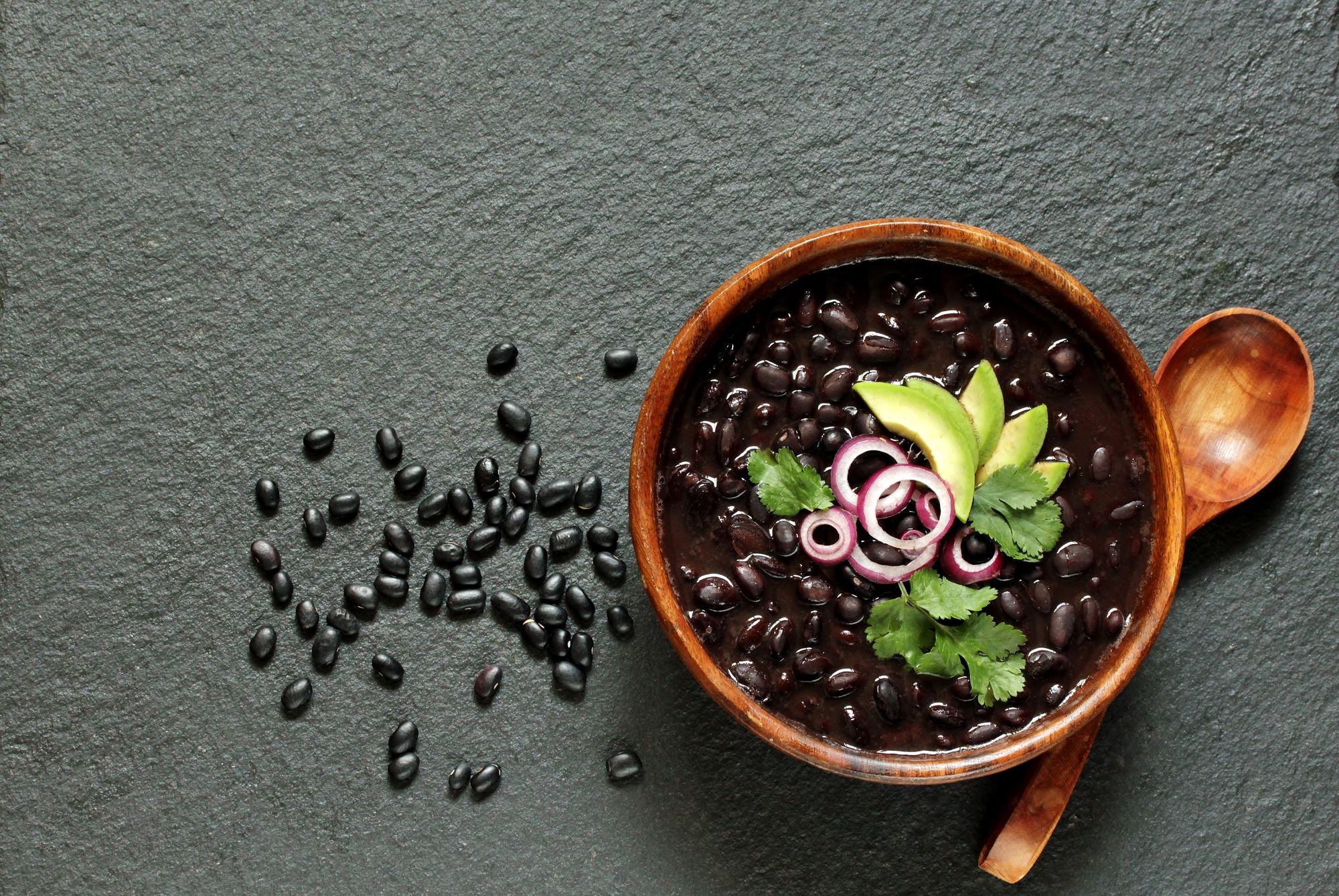
Black beans, like raw oats and other legumes, are a rich source of resistant starch, which provides fuel for the healthy bacteria in your gut to ferment into butyrate, a fatty acid that can help reduce inflammation. In addition to delivering 3.1 grams of resistant starch per cup, black beans also contain nearly 15 grams of protein and 15 grams of fiber, making them a satisfying and healthy food option for weight management.
Black beans are also high in anthocyanins, which are antioxidants that have been linked to reducing inflammation. According to a 2020 study published in the journal Nutrients, consuming cooked black beans was associated with increased gut bacteria diversity, leading to a decrease in inflammatory response and improved insulin sensitivity. By incorporating black beans into your diet, you can potentially benefit from their anti-inflammatory properties, as well as their protein and fiber content, leading to improved overall health.
13) Extra virgin olive oil
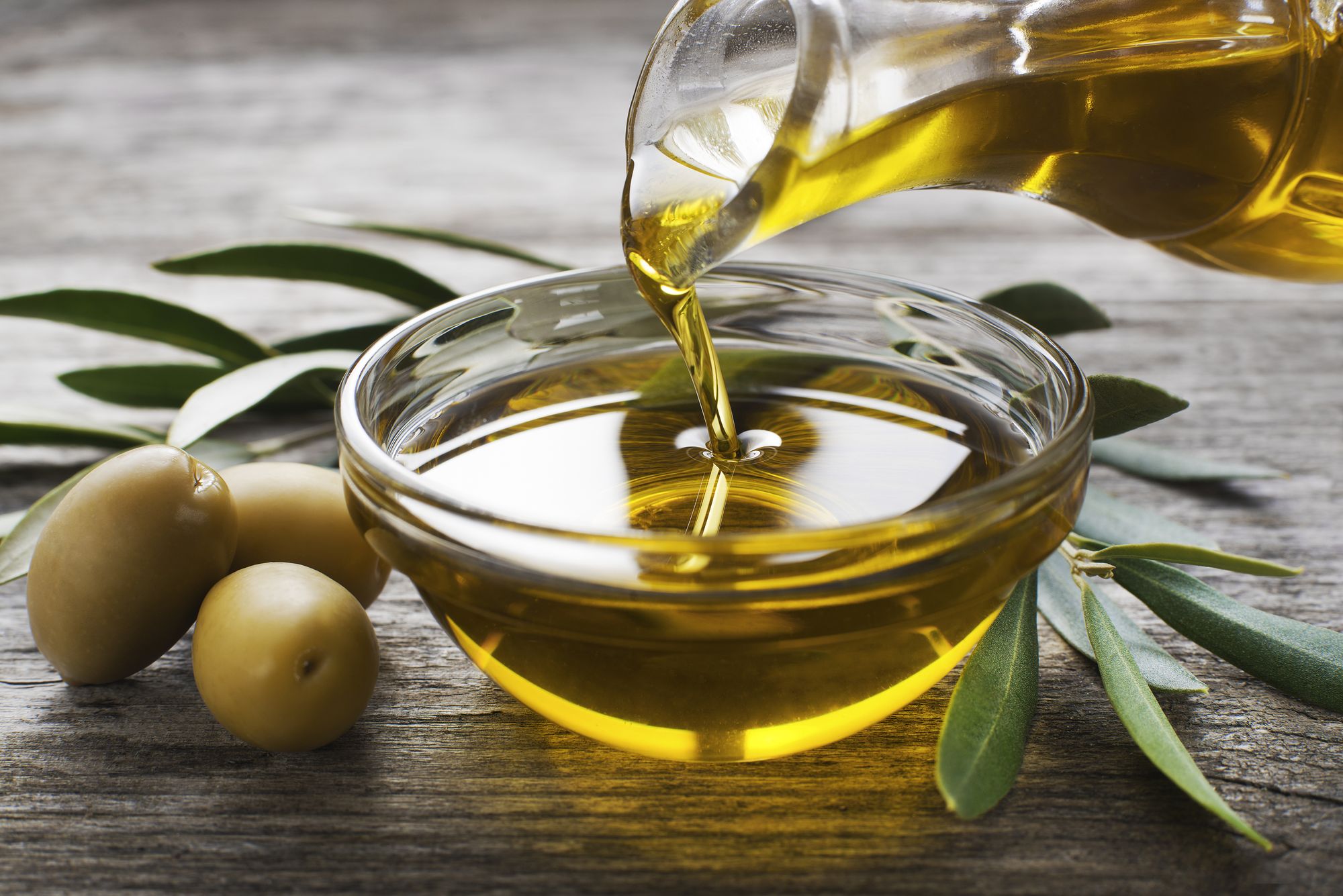
In addition to reducing the risk of cardiovascular disease and promoting weight loss, the Mediterranean diet is also known for its anti-inflammatory benefits. While initially believed to be due to the presence of healthy monounsaturated fats, researchers have found that other oils with similar fat content, such as oleic acid, do not offer the same health advantages. Instead, a key component of the Mediterranean diet's anti-inflammatory properties is oleocanthal, a compound exclusively found in extra virgin olive oil that is unrefined and contains more phenolic compounds.
Oleocanthal has a significant impact on inflammation and works in a similar way to ibuprofen, preventing the production of pro-inflammatory COX-1 and COX-2 enzymes. By incorporating extra virgin olive oil into your diet, you can potentially benefit from the anti-inflammatory properties of oleocanthal and improve your overall health.
14) Tomatoes
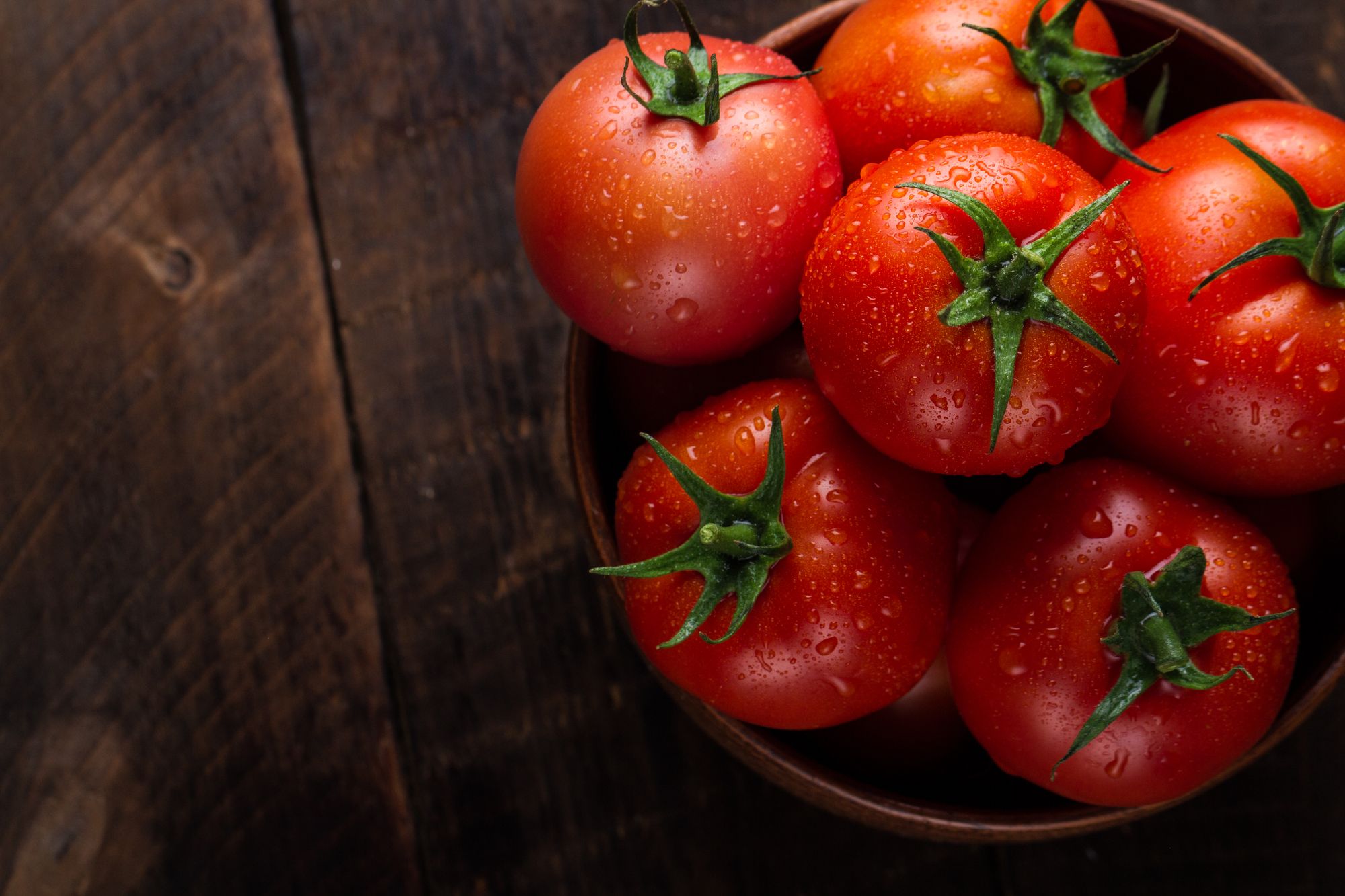
Tomatoes are a rich source of lycopene, an antioxidant that can protect your brain and combat inflammation, which is linked to depression. Since lycopene is mainly found in tomato skins, adding cherry tomatoes to your salad instead of using a whole tomato can increase your lycopene intake. For optimal absorption of this fat-soluble antioxidant, consider pairing tomatoes with a little olive oil, which has been shown to enhance lycopene absorption. By incorporating tomatoes into your diet, you can potentially benefit from their anti-inflammatory and brain-protective properties, leading to improved overall health.
15) Chia seeds
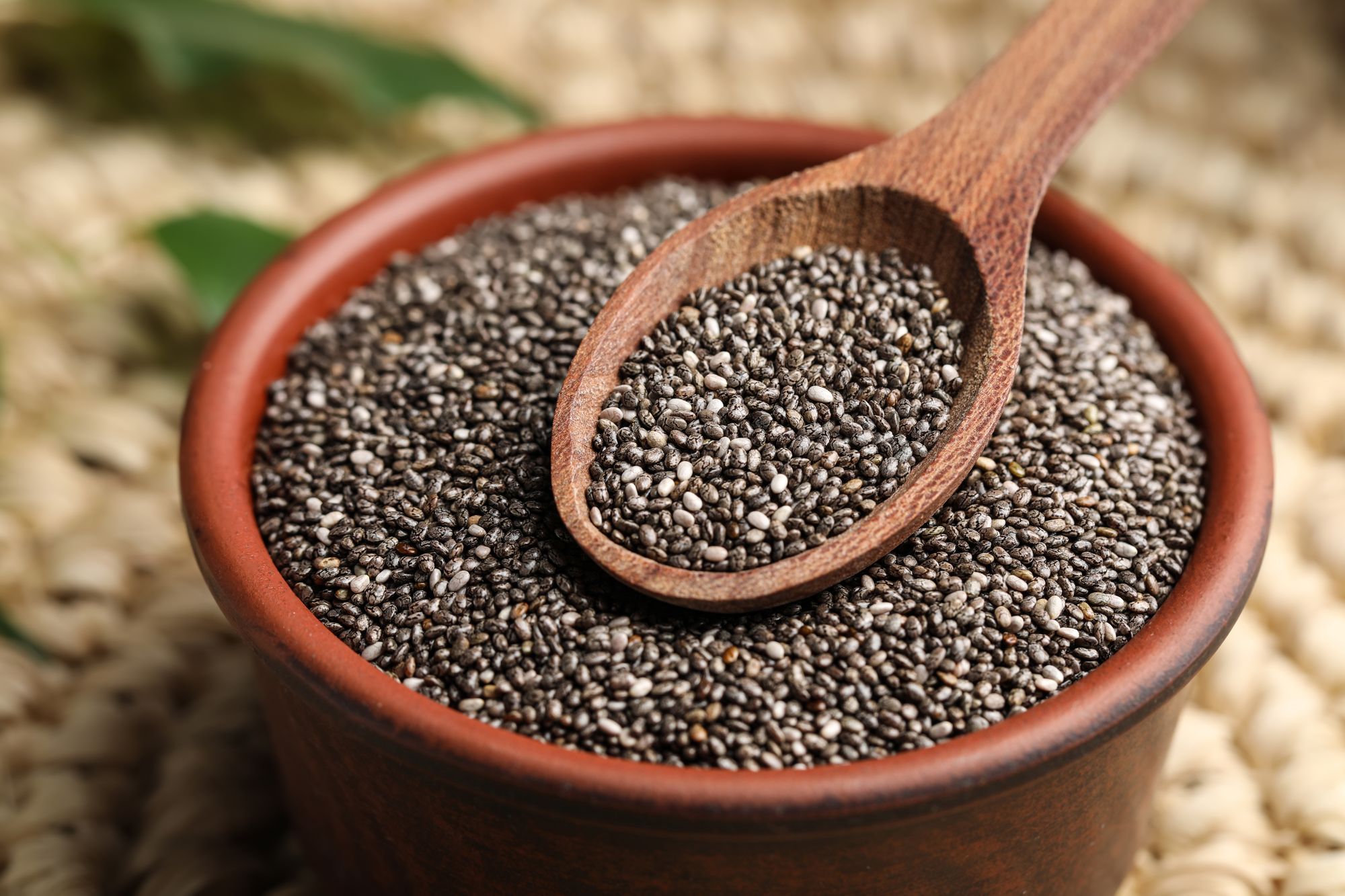
Chia seeds are a superfood that can help fight inflammation, with nearly 9 grams of healthy fats that include ALA omega-3s, 9.8 grams of fiber, and 4.6 grams of protein per ounce. The Harvard School of Public Health suggests that chia seeds can also reduce spikes in blood sugar levels in a dose-dependent manner. High levels of post-eating blood sugar spikes have been linked to an increase in inflammation due to the overproduction of reactive oxygen species (ROS), which are inflammatory free radicals. By including chia seeds in your diet, you can potentially benefit from their anti-inflammatory and blood sugar regulating properties, leading to better overall health.
16) Pineapple

Pineapple contains bromelain, an enzyme that is not only known for its meat-tenderizing properties but also for its anti-inflammatory effects. Although many anti-inflammatory foods do not directly reduce inflammation, they can alleviate symptoms that may eventually lead to inflammation.
Bromelain has been found to be helpful in reducing asthmatic symptoms by decreasing the spread of pro-inflammatory metabolites. It can also alleviate post-exercise inflammation by assisting in repairing and resolving muscle soreness through its high levels of potassium. While all parts of the pineapple contain this beneficial compound, the stem contains most of the bromelain. Though the stem can be tough to eat, you can blend or juice it with the sweeter flesh to enjoy the bloat-reducing benefits.
17) Spinach
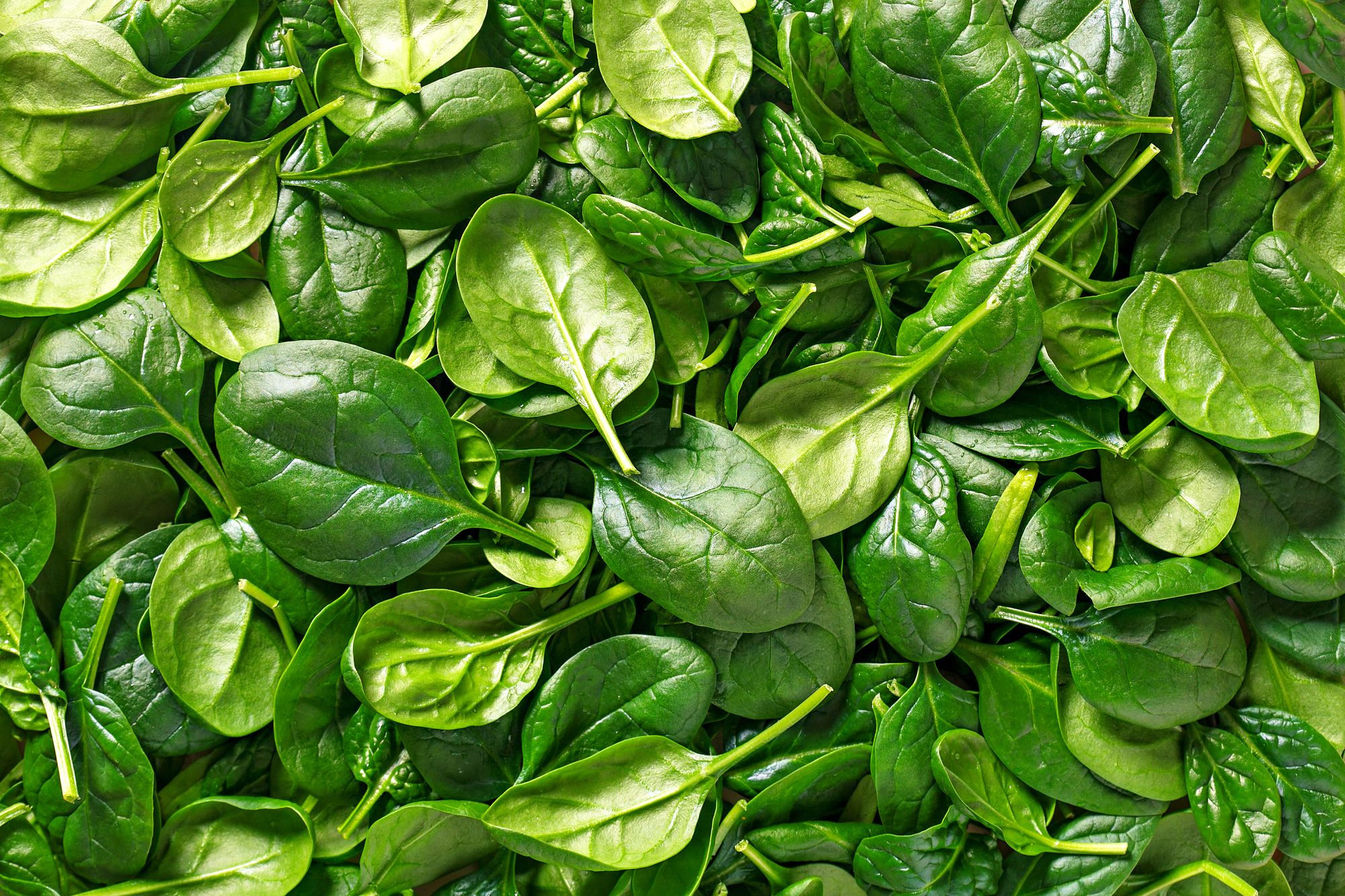
Spinach is a versatile vegetable that can help you fight inflammation. It contains carotenoids, vitamins C, E, and K, all of which can protect your body from pro-inflammatory cytokines. Scientific research has shown that vitamin E can specifically reduce inflammatory markers, and a study published in Oxidative Medicine and Cellular Longevity has found that carotenoids can play a helpful role in reducing inflammation in women with diabetes. By incorporating spinach into your diet, you can improve your body's anti-inflammatory response and promote better overall health.
18) Whole grains
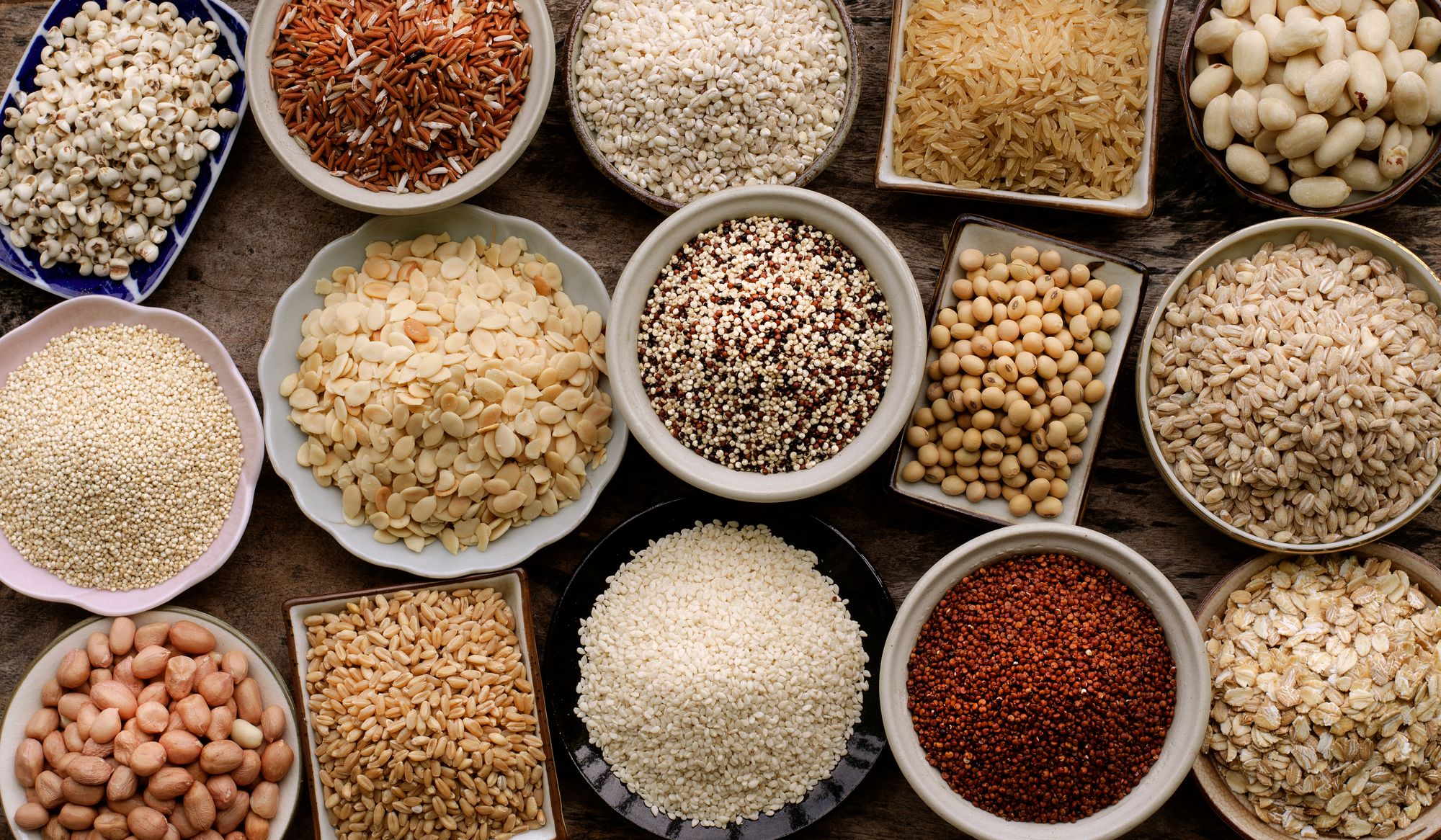
Whole grains like brown rice, quinoa, millet, and amaranth are excellent sources of fiber that aid in the production of butyrate, a fatty acid that can switch off genes associated with inflammation and insulin resistance. These grains are also high in B vitamins, which can help lower levels of the inflammatory hormone homocysteine in the body. Additionally, consuming high-fiber foods can help reduce appetite and limit the intake of pro-inflammatory foods. It's worth noting that the refinement process removes most of the B vitamins in grains, so it's best to opt for whole grain varieties.
19) Eggs

In addition to promoting strong bones, Vitamin D has also been shown to combat depression, reduce the risk of certain cancers, and most importantly, reduce inflammation. Studies have found a link between vitamin D deficiency and higher levels of pro-inflammatory markers in the body. While sunlight exposure helps the body produce vitamin D, a diet rich in vitamin D is important for those who spend a lot of time indoors. Whole eggs are a great source of vitamin D.
20) Garlic
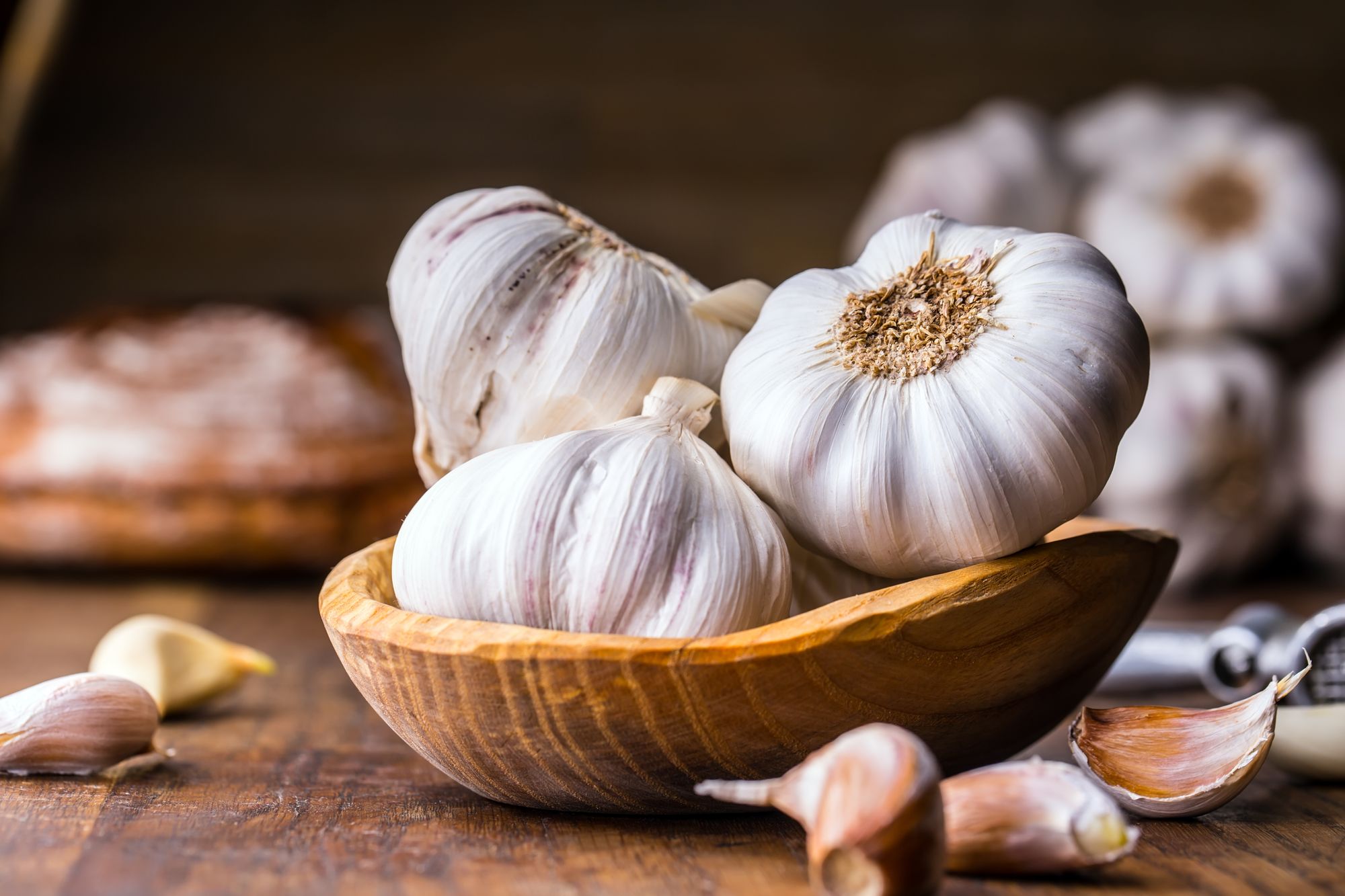
This article explores the health benefits of garlic and its ability to combat the common cold. Studies have shown that the compound allicin found in garlic has antimicrobial properties that help to fight off bacterial and viral infections by blocking enzymes. Garlic also contains organosulfur compounds, which have anti-inflammatory and immune-boosting effects, according to a study in Molecular Nutrition & Food Research. While aged-garlic supplements provide the highest concentration of these compounds, consuming fresh garlic can also be beneficial. To activate the bioactive allicin compound, it's recommended to crush the garlic before consumption.
21) Oysters
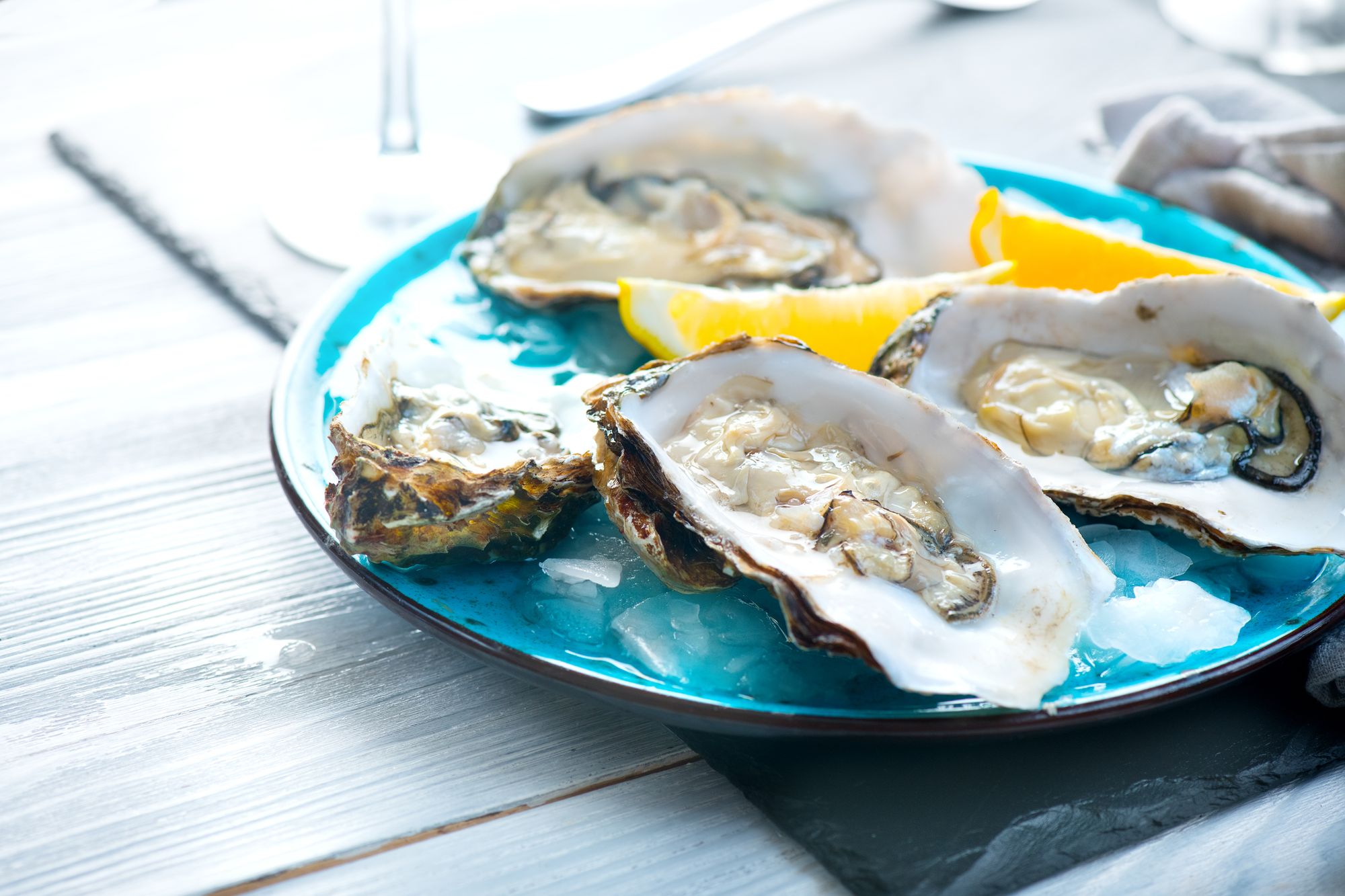
If you're a fan of oysters, you'll be happy to know that they are also an anti-inflammatory food. Oysters, like some other types of seafood such as salmon, tuna, and mussels, contain omega-3 fatty acids. The National Institute of Health states that omega-3 fatty acids can help reduce inflammation in various ways, including blocking inflammatory cytokines, increasing production of inflammation-resolving compounds called resolvins, and activating anti-inflammatory transcription factors, among other benefits.
22) Kamut
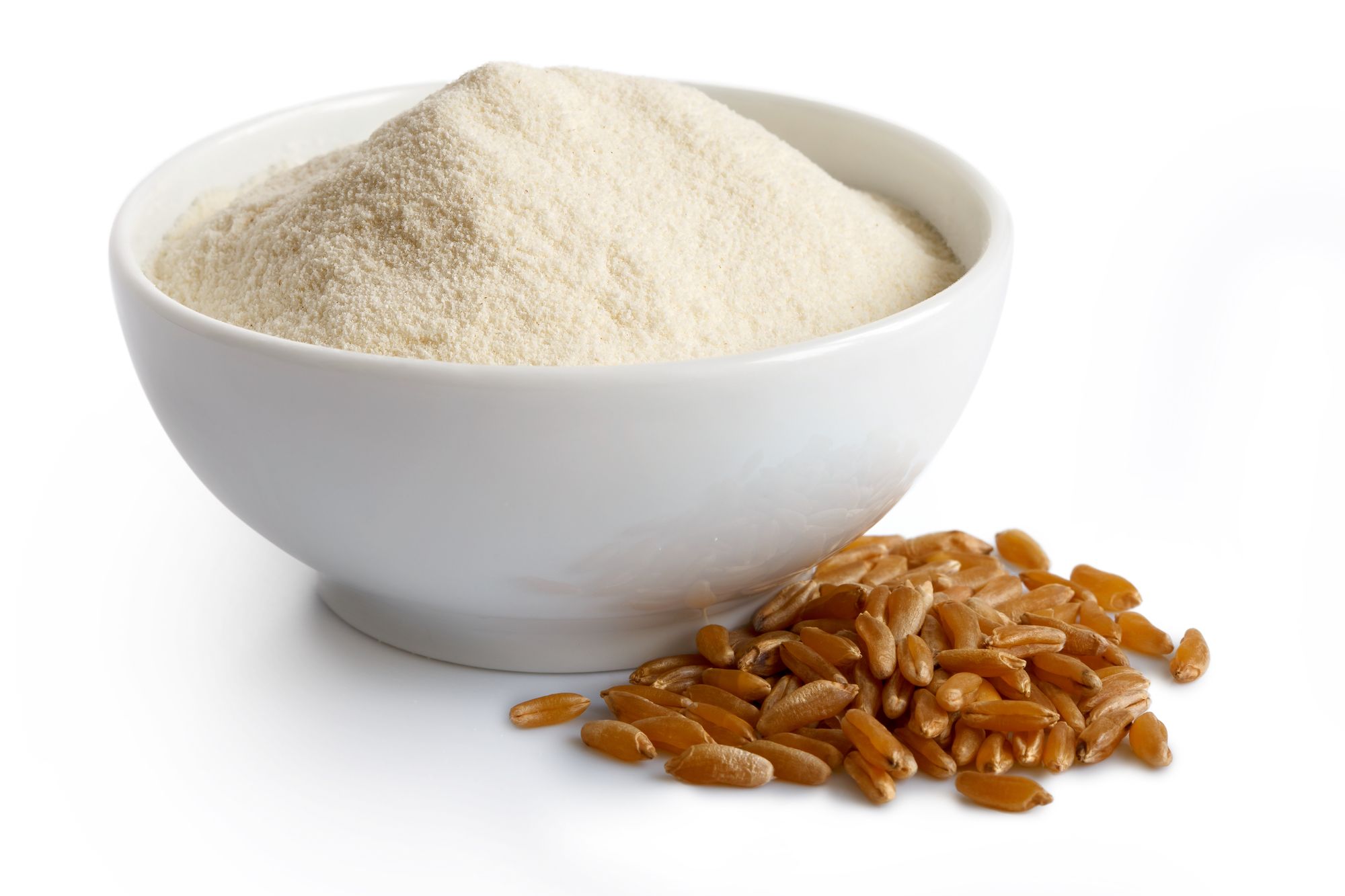
Kamut, also known as Khorasan wheat, is an anti-inflammatory superfood that's gaining popularity. This ancient grain is high in protein, with more grams per gram than even quinoa, and is also rich in minerals like magnesium, potassium, and iron, making it a great option for muscle protection and energy boost. In addition, kamut is an excellent source of fiber, with 7 grams per cup, which can help you feel fuller longer and reduce inflammation.
Substituting plant-based vegan foods for meat is a great way to reduce inflammation, as animal protein is one of the leading sources of inflammatory saturated fats. Moreover, a study published in Food Research International has shown that consuming kamut can lower levels of cytokines, which are compounds that can cause inflammation throughout the body.
23) Yogurt
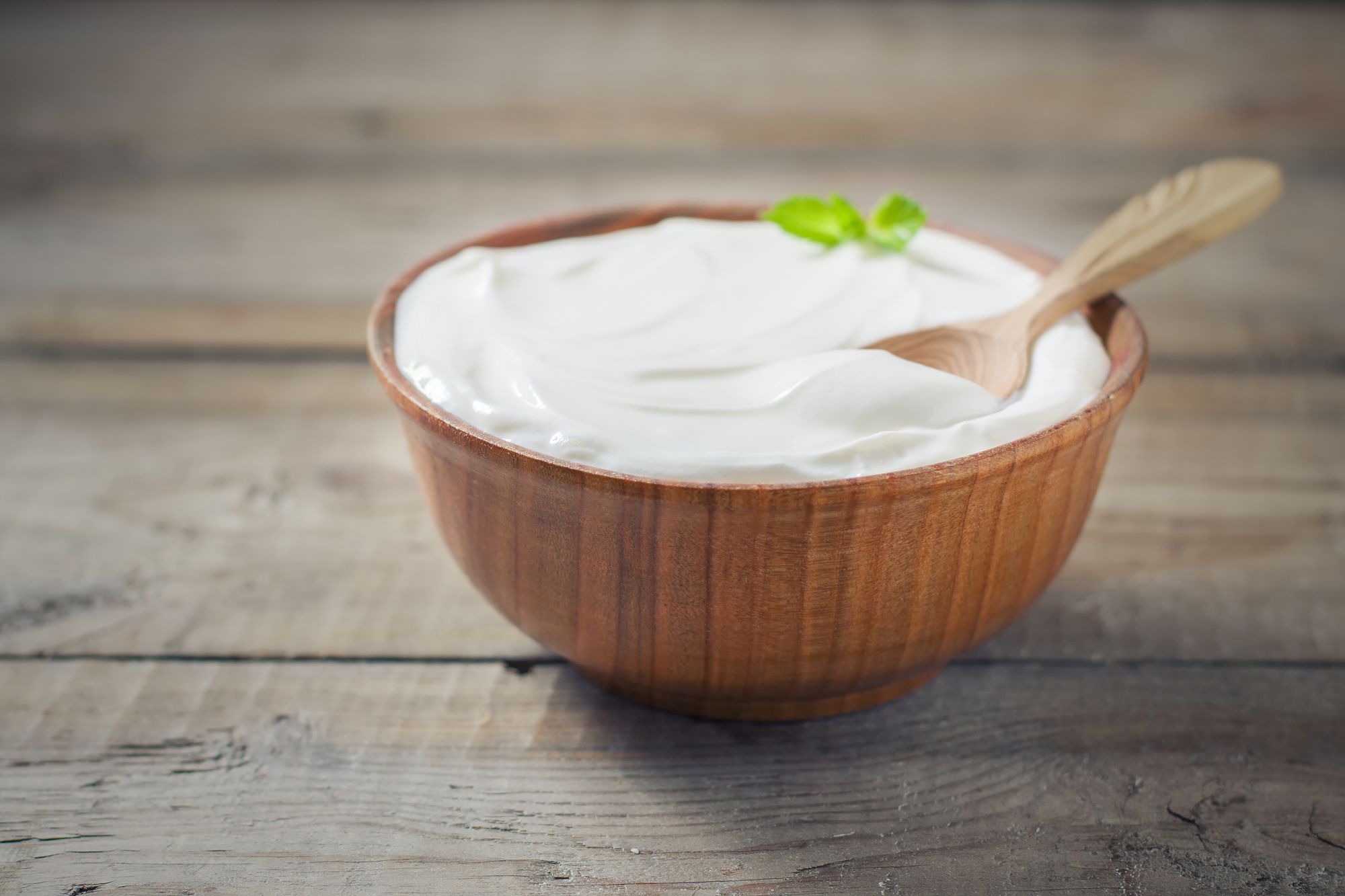
Maintaining a healthy gut microbiome is crucial for combating inflammation and promoting overall health. This is because the beneficial bacteria in your gut convert food into anti-inflammatory fatty acids that can reduce inflammation. However, an unhealthy gut cannot perform this function effectively.
Incorporating cultured, fermented foods known as probiotics into your diet can help replenish your gut with healthy microbes, which can help combat inflammation. Low-sugar yogurt that contains live active cultures is a readily available source of probiotics. Other probiotic-rich foods include kefir, sauerkraut, pickles, kimchi, and cheese.
24) Apples
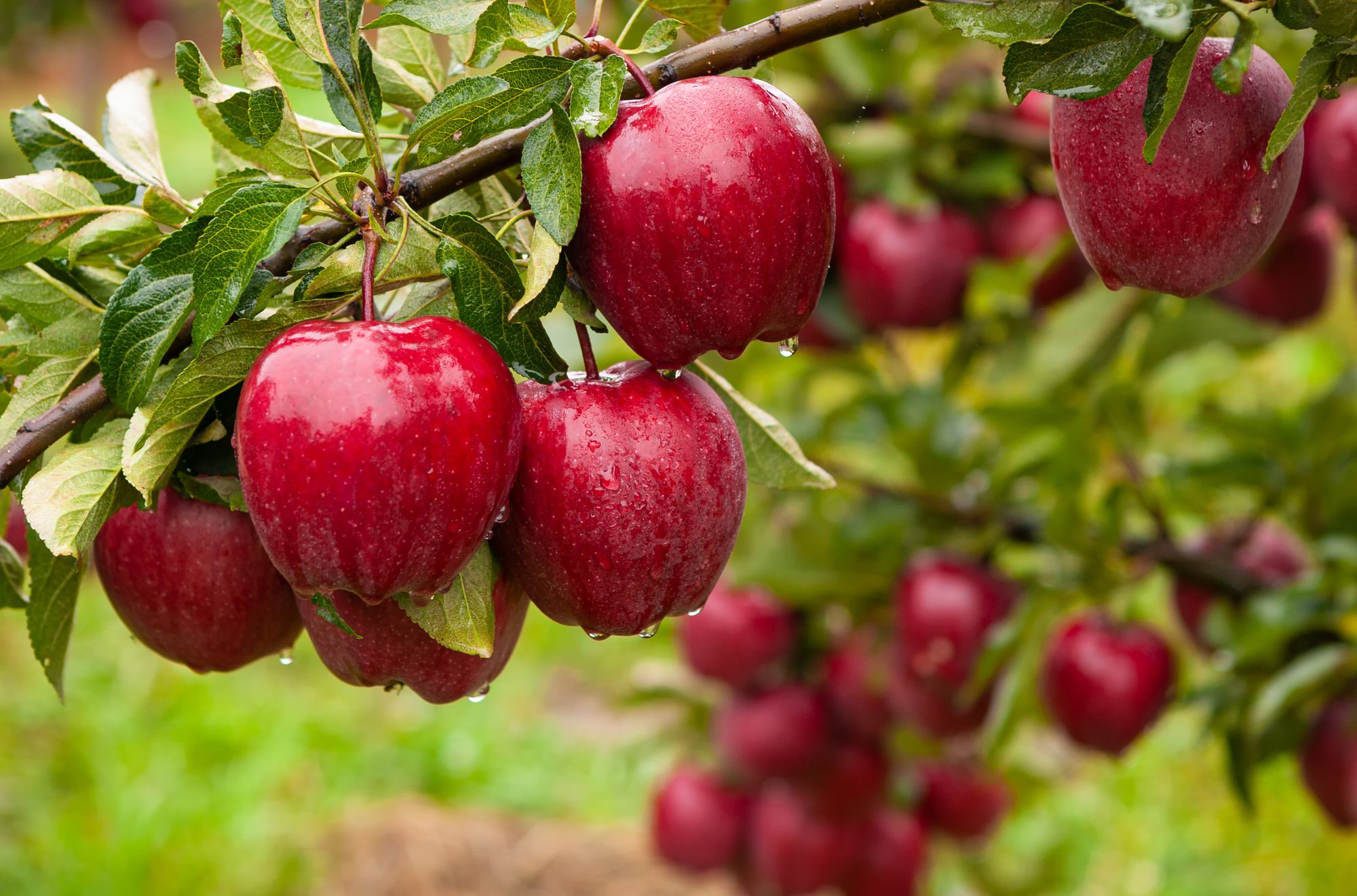
For a successful probiotic regimen, it is important to also consume prebiotic foods that provide high amounts of fiber as fuel for your gut bacteria to function properly. Apple peels are a great source of pectin, a natural fruit fiber that a study published in the journal Nutrients found to be powerful in supporting the growth of the beneficial bacteria bifidobacteria and lactobacillus. Incorporating apple peels into your diet can be a simple and effective way to promote gut health and reduce inflammation.
25) Nuts
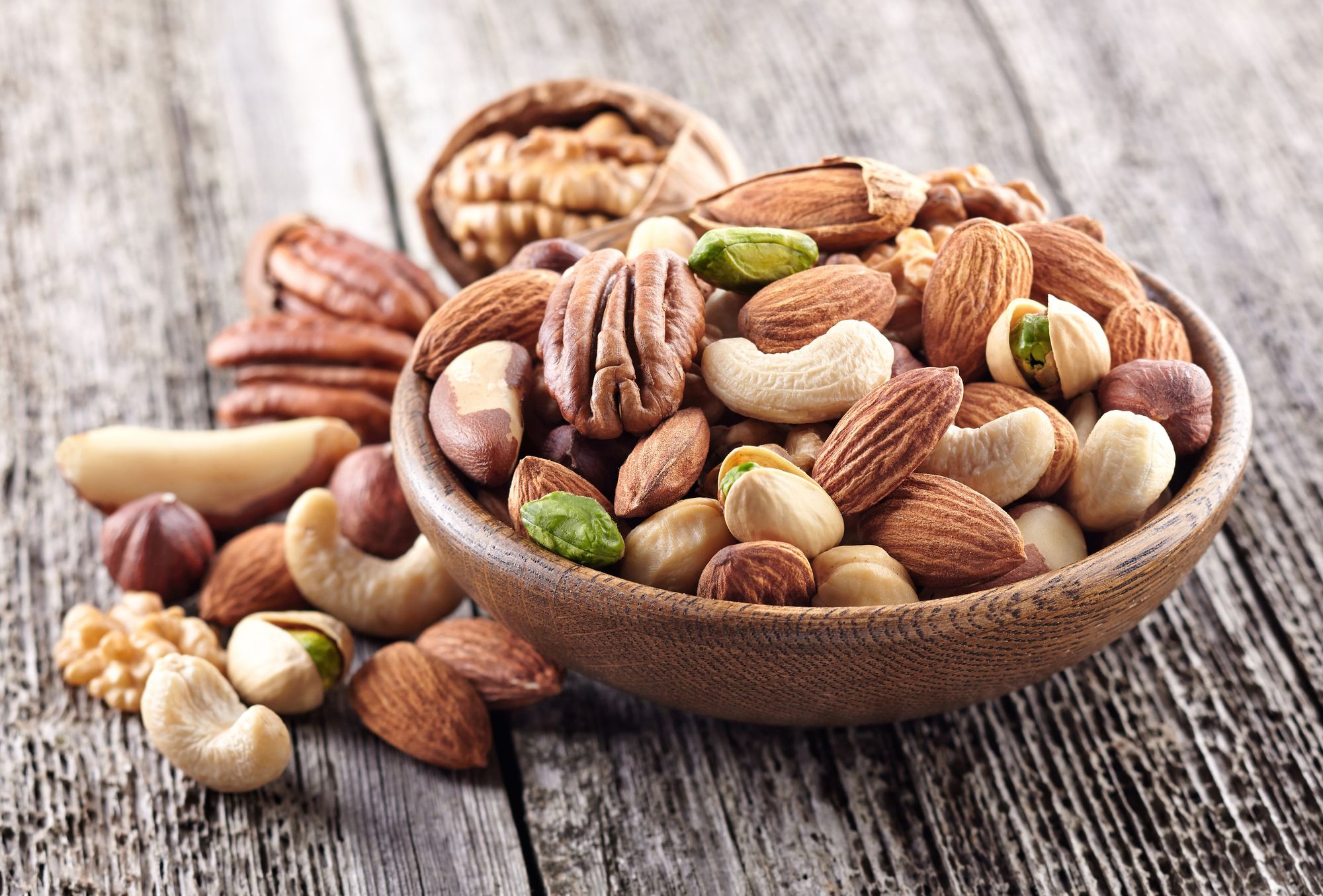
Nuts, particularly walnuts, are a good source of plant-based anti-inflammatory omega-3 called ALA, although not as potent as animal-based DHA and EPA. Almonds are a great source of antioxidant vitamin E, which can help shield cells from oxidative damage caused by inflammation, and hazelnuts have the highest amount of immune-protective oleic acid.
26) Canned light white tuna
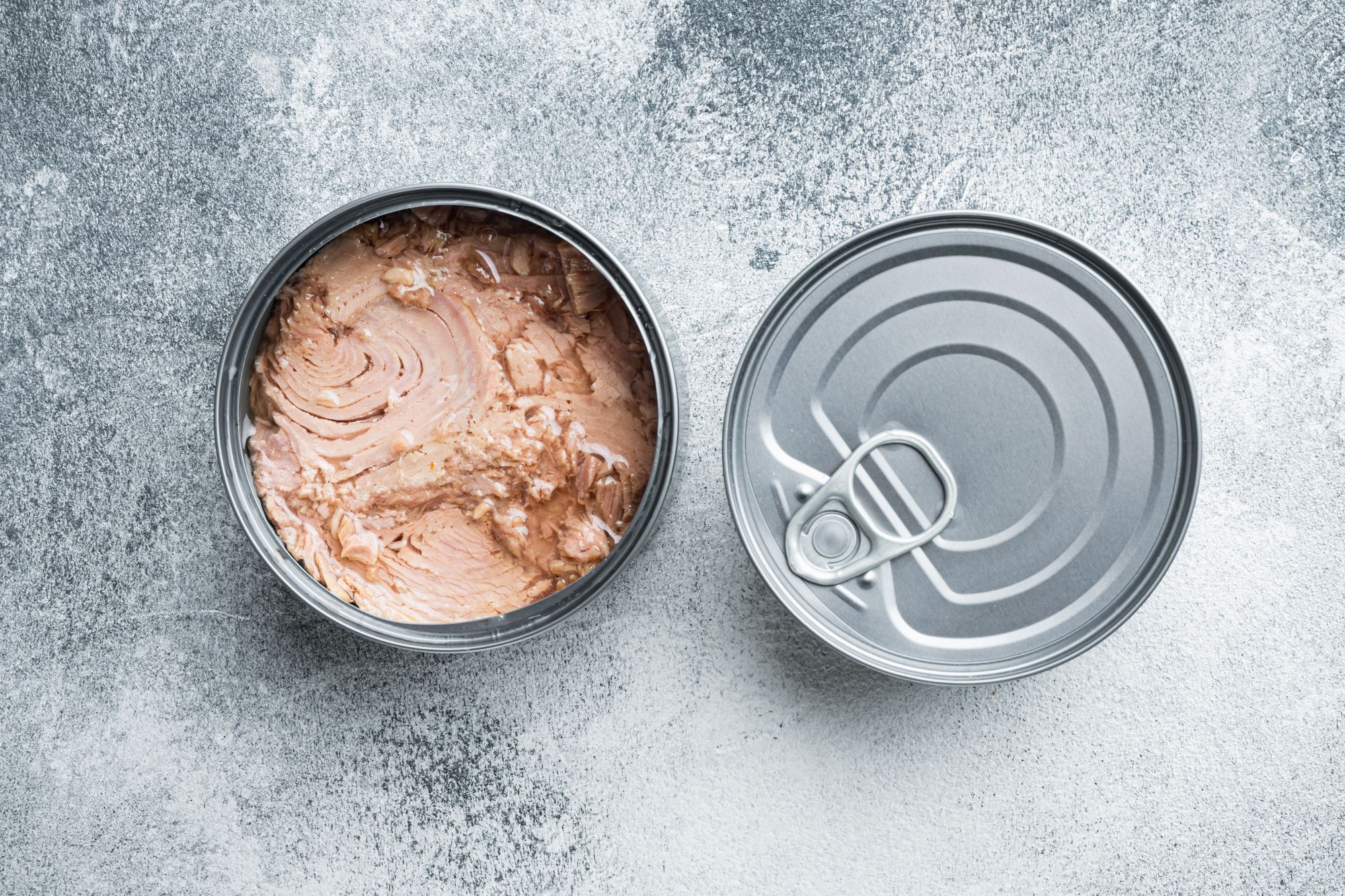
A 2016 study published in the American Journal of Clinical Nutrition suggests that DHA is more effective than EPA in reducing specific markers of inflammation. So, how can you add more of this powerful anti-inflammatory food to your diet without breaking the bank? Look no further than a can of light skipjack tuna, which is one of the best sources of this bioactive fatty acid and one of the best anti-inflammatory foods available.
27) Rosemary
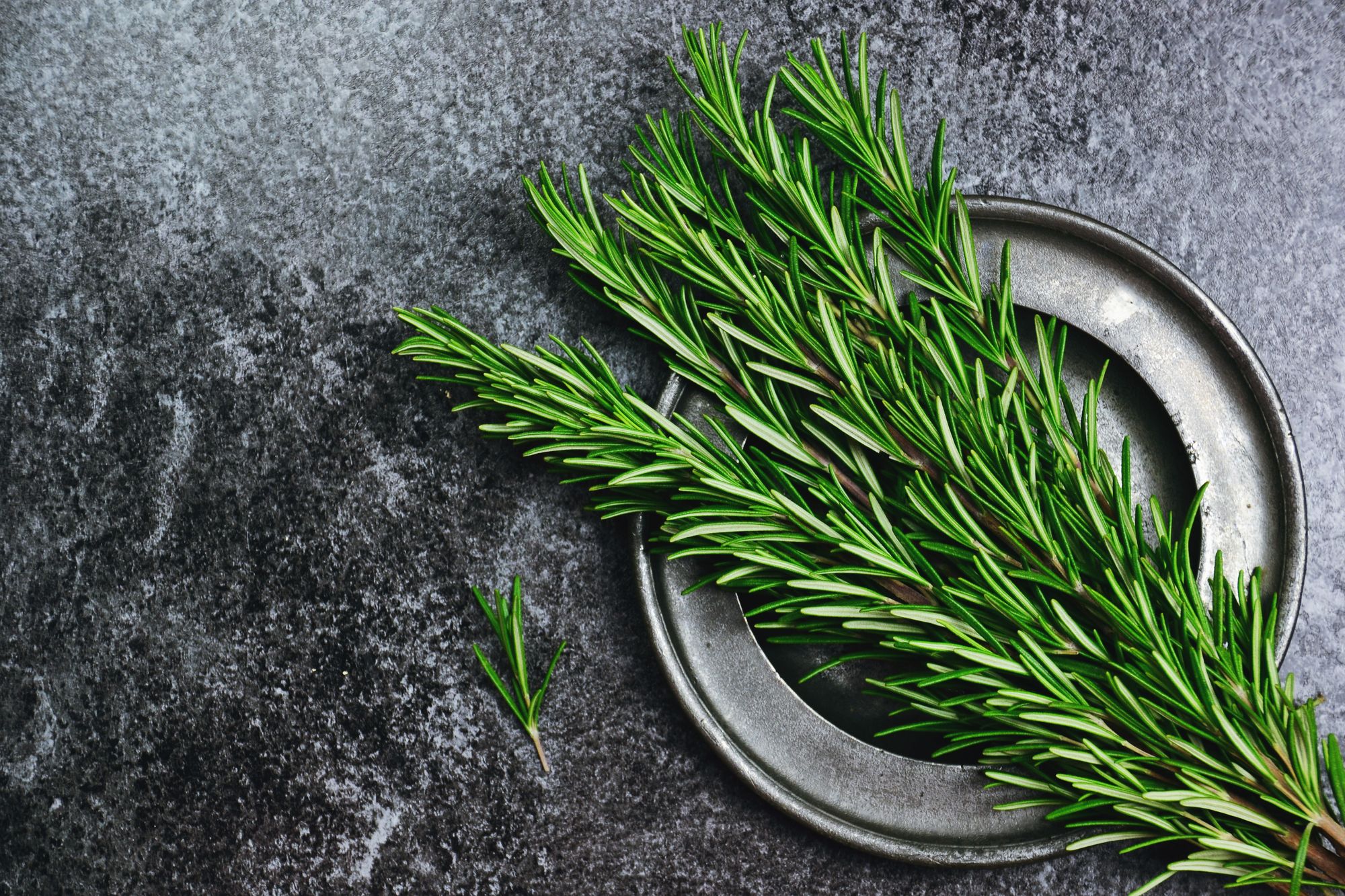
Rosemary isn't just a versatile herb that adds flavor to dishes, it is also a potent anti-inflammatory food. This is due to the high concentration of antioxidant compounds found in rosemary. These compounds include carnosic acid and carnosol, which researchers believe contribute to the herb's anti-inflammatory activity. A study published in BMC Complementary and Alternative Medicine found that these compounds effectively inhibit the production of pro-inflammatory cytokines. Another study in the Iranian Journal of Basic Medical Sciences adds that rosemary is also neuroprotective, antioxidant, anti-tumorigenic, and antimicrobial, making it a powerful addition to any anti-inflammatory diet.
28) Bone broth
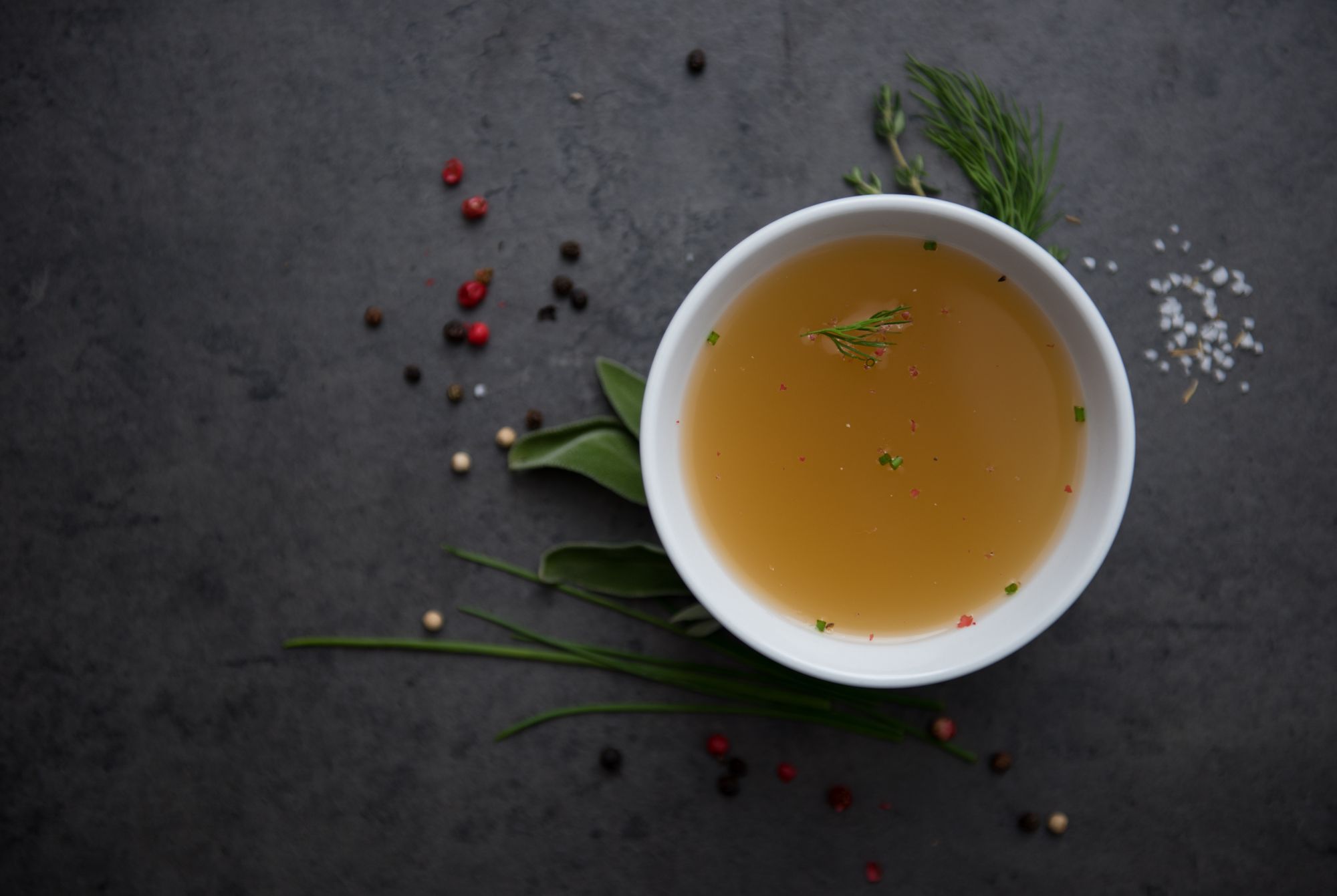
Bone broth is more than just a trendy food, as it offers evidence-based anti-inflammatory benefits for your health. To make it, simmer bones in water for an extended period, breaking down their collagen and other nutrients.
Glucosamine, an anti-inflammatory compound found in the broken-down material from the cartilage and tendons, is one of the beneficial nutrients in bone broth, according to a study in Scientific Reports. Glycine and proline, two other anti-inflammatory amino acids, are also found in the broth, and the ample levels of gelatin can help rebuild your gut lining to further support the growth of anti-inflammatory gut microbes.
29) Raw honey
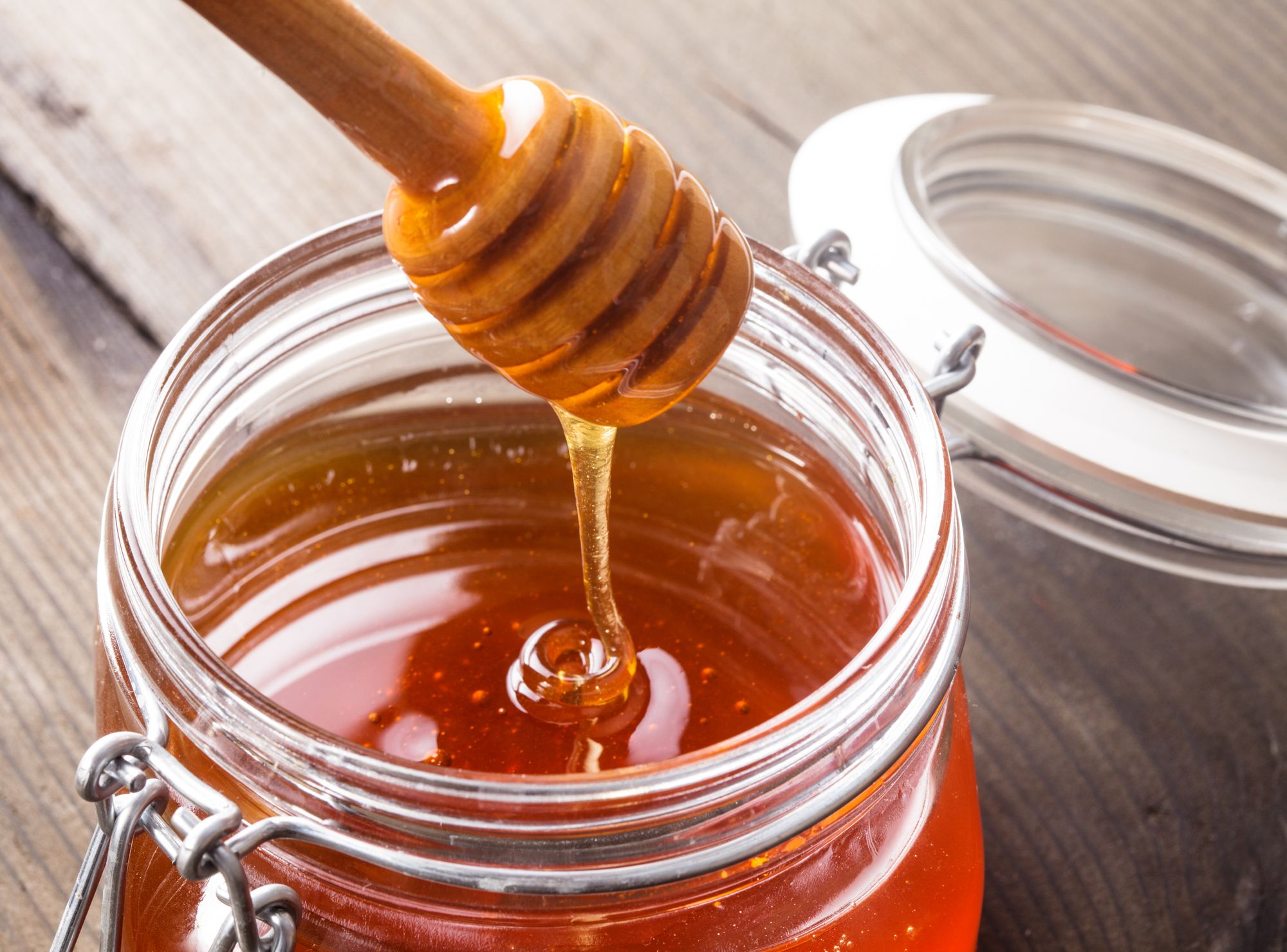
Proteolytic enzymes play a crucial role in regulating the body's inflammatory response. These enzymes break down proteins and cellular debris, helping to clear them out and reduce the immune system's and body's inflammatory response. While digestive enzymes help with digestion, proteolytic enzymes are essential for overall health and reducing inflammation.
30) Miso
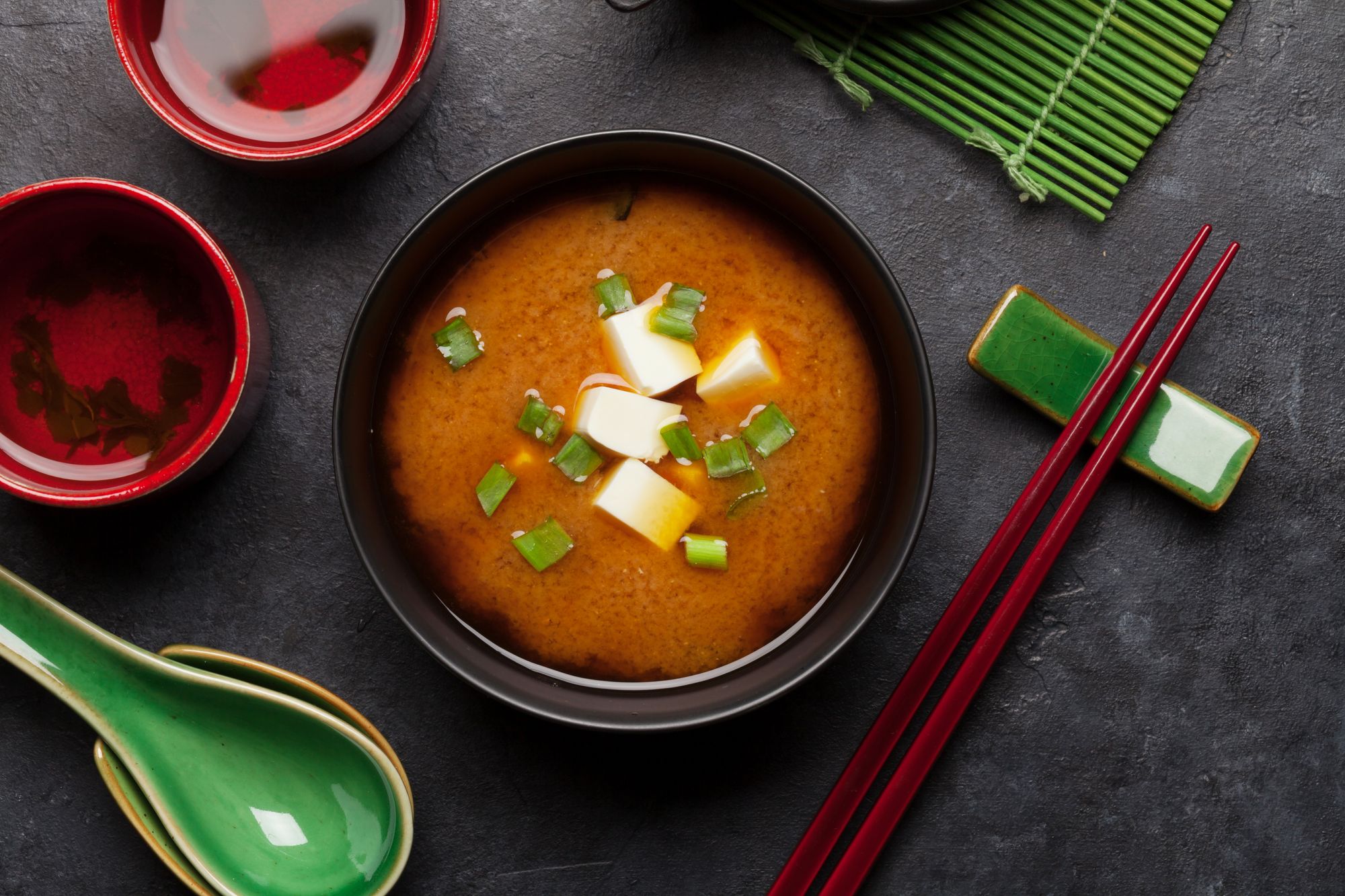
Miso is a powerful anti-inflammatory food that has a lot to offer. As a fermented food, it is loaded with probiotic compounds that convert fibers into anti-inflammatory agents. Additionally, miso is made from soy, which is rich in isoflavones - estrogen-like compounds known for their anti-inflammatory benefits.
Studies have shown that isoflavones help reduce inflammation by decreasing pro-inflammatory enzyme and cytokine activities. Furthermore, research published in the International Journal of Molecular Sciences suggests that isoflavones play an anti-inflammatory role in chronic degenerative diseases, such as cancer, arthritis, cardiovascular disease, and neurodegenerative diseases. Incorporating miso into your diet is a tasty way to reap the benefits of this powerful anti-inflammatory food.

